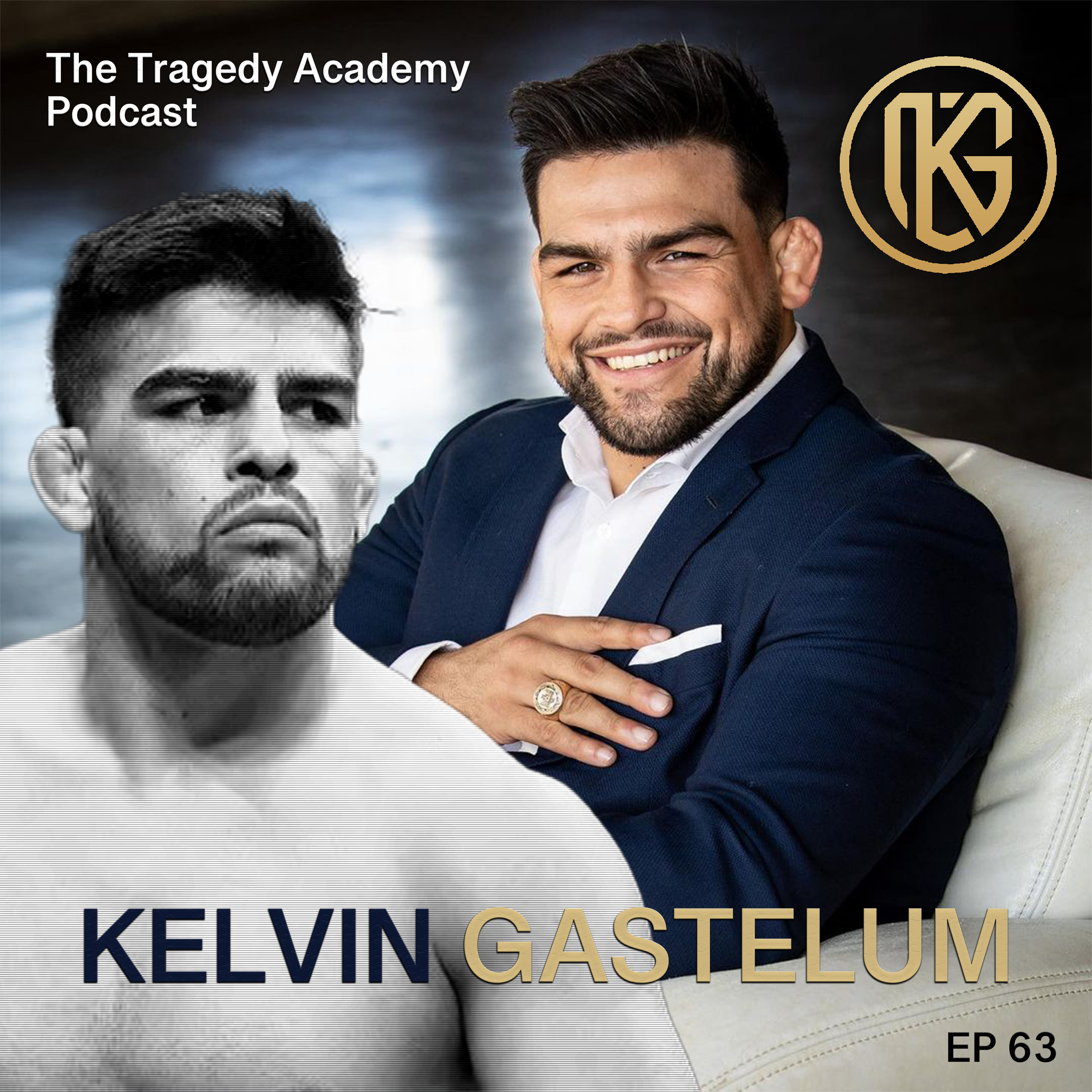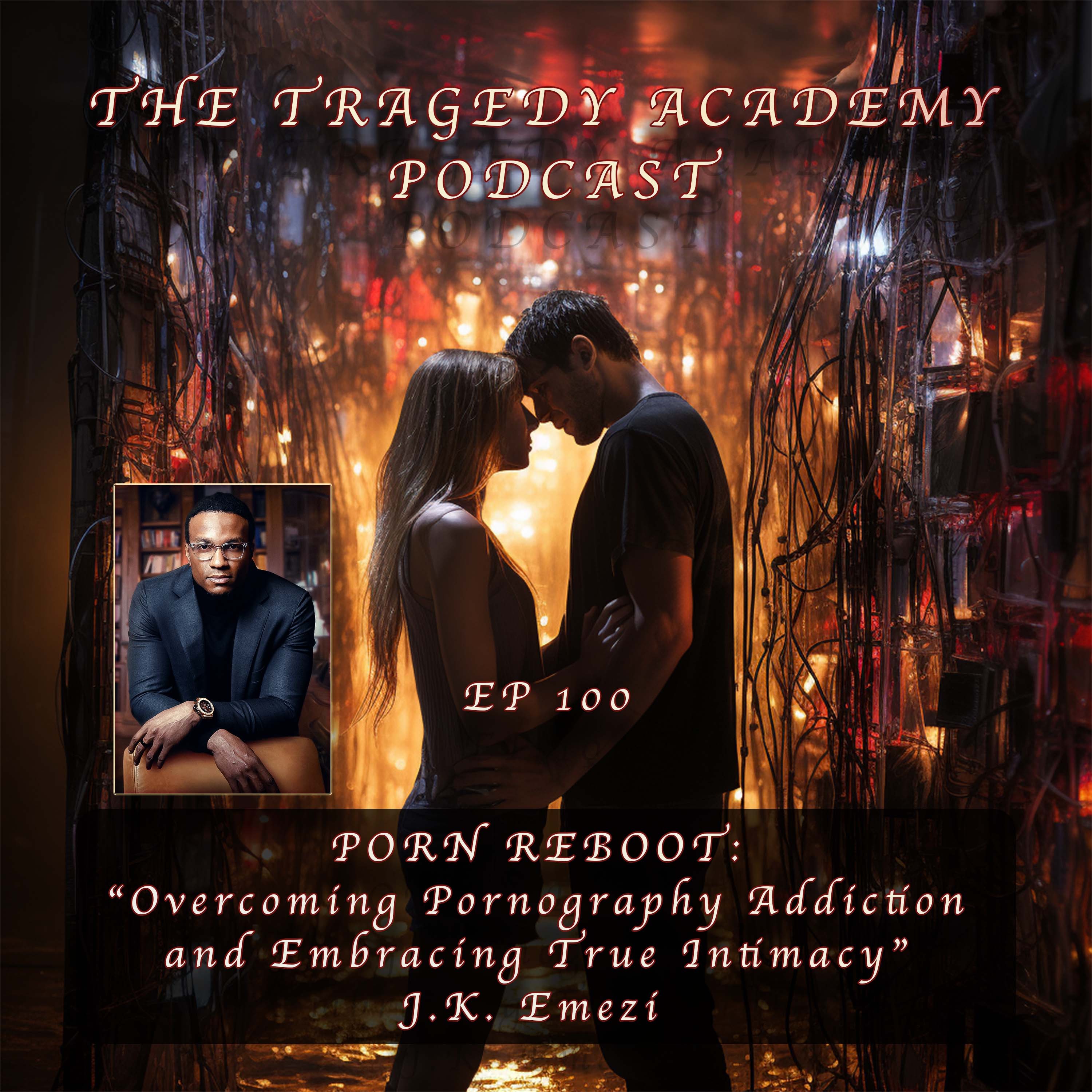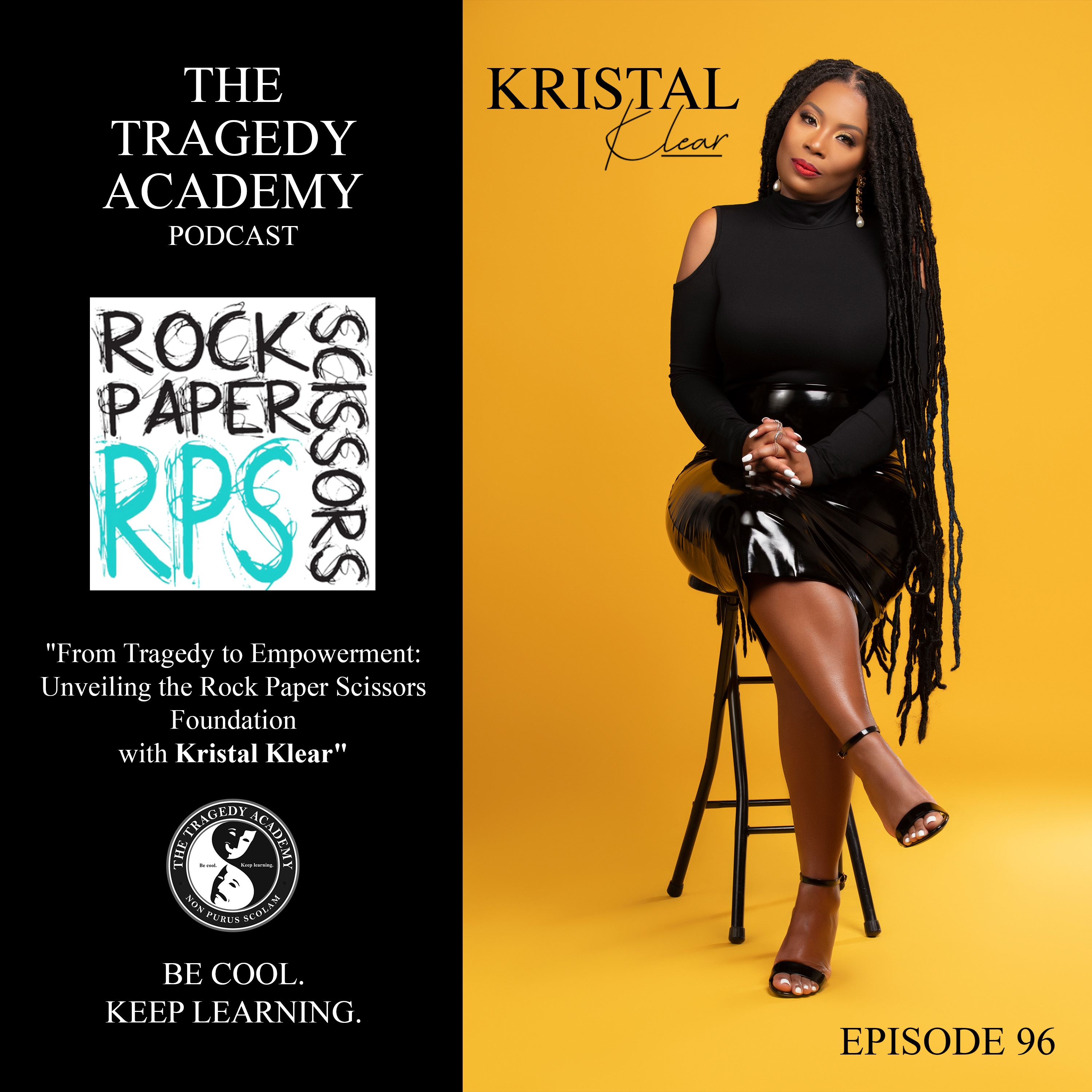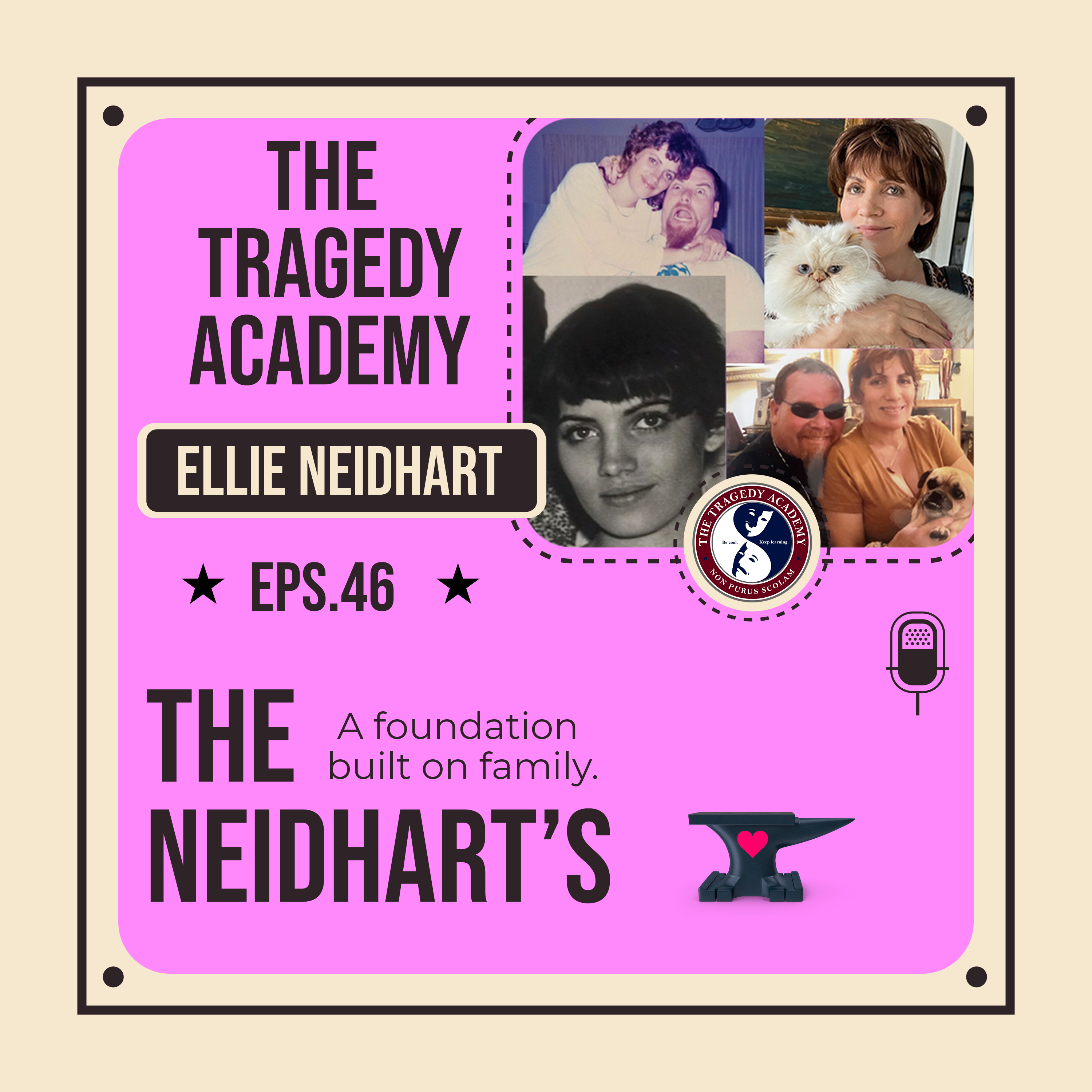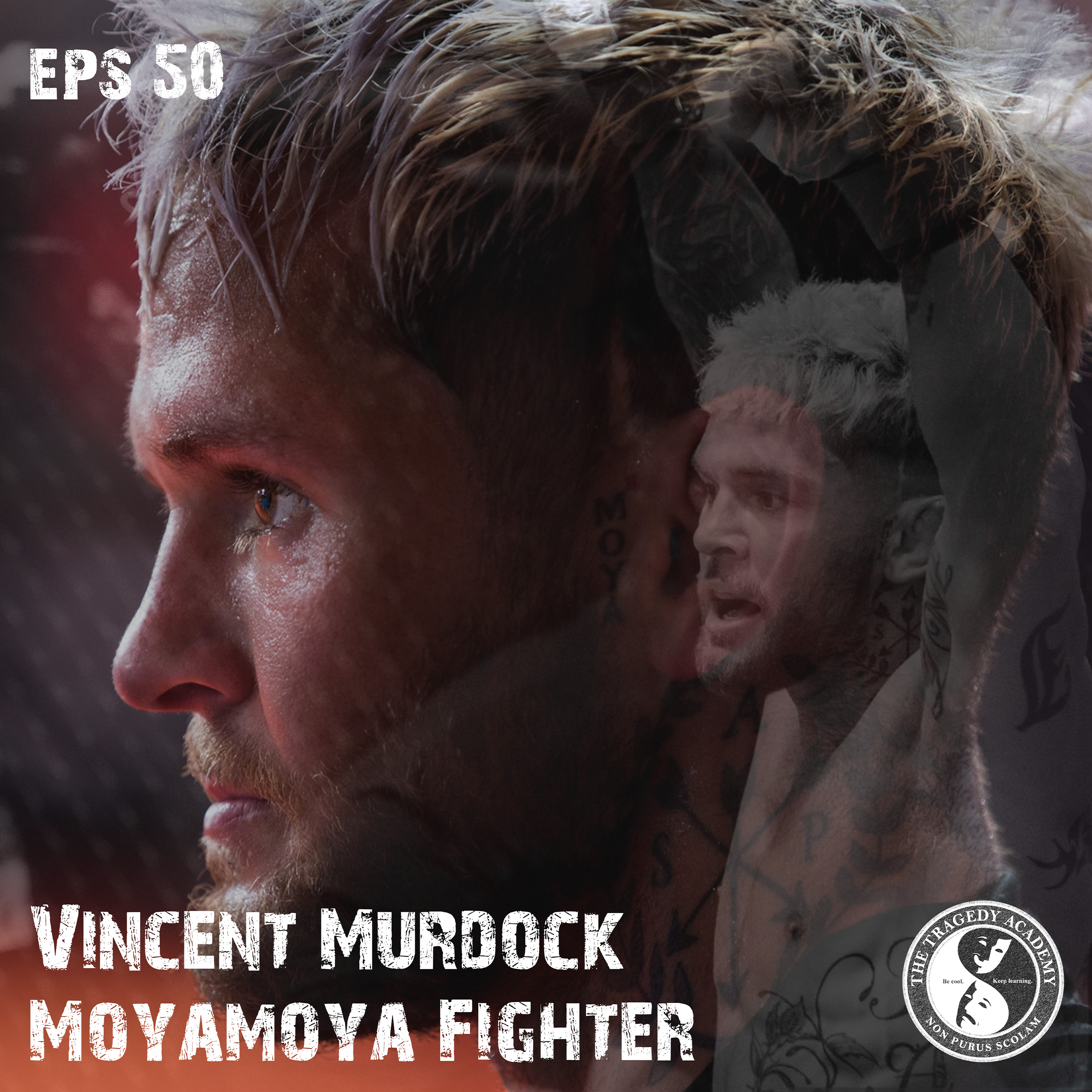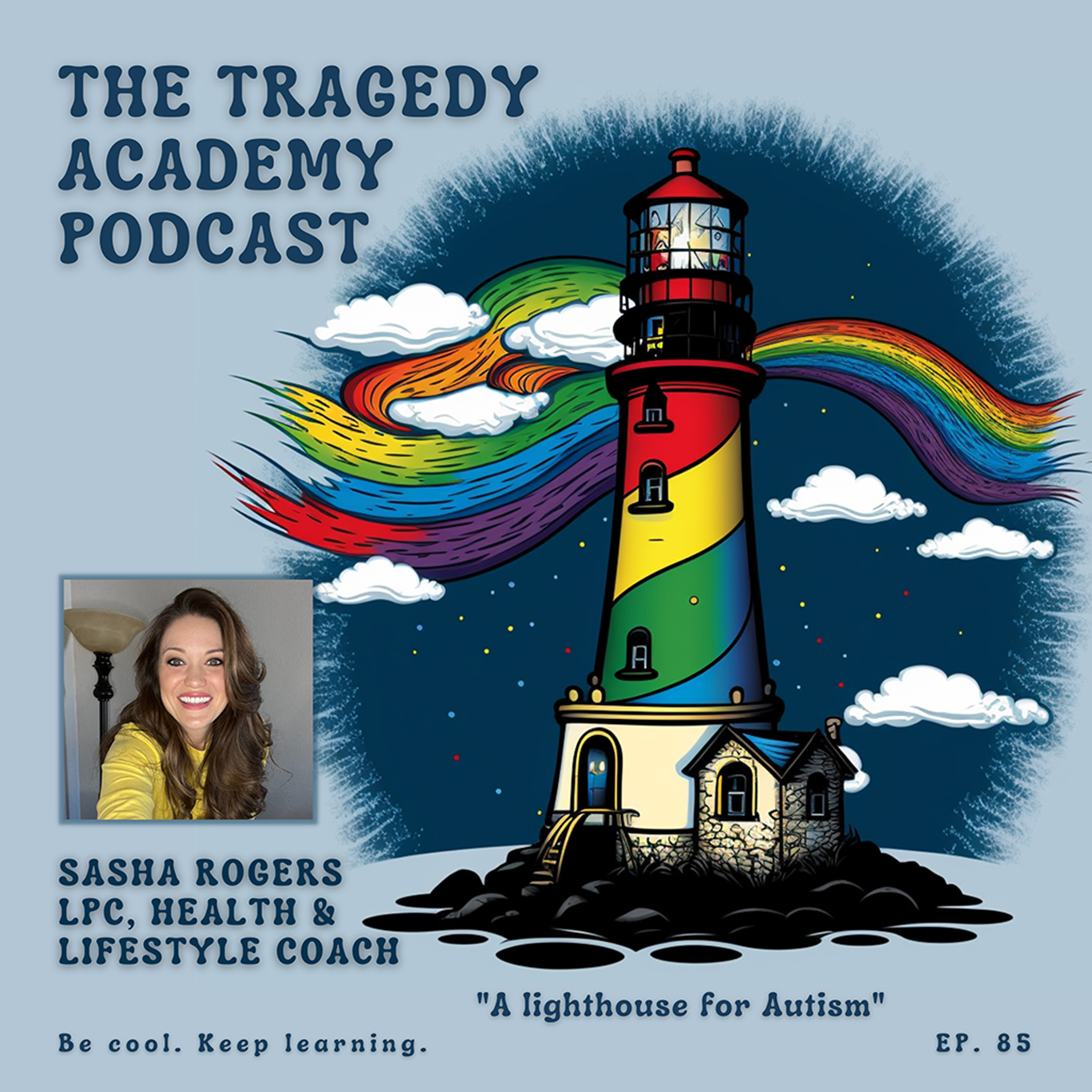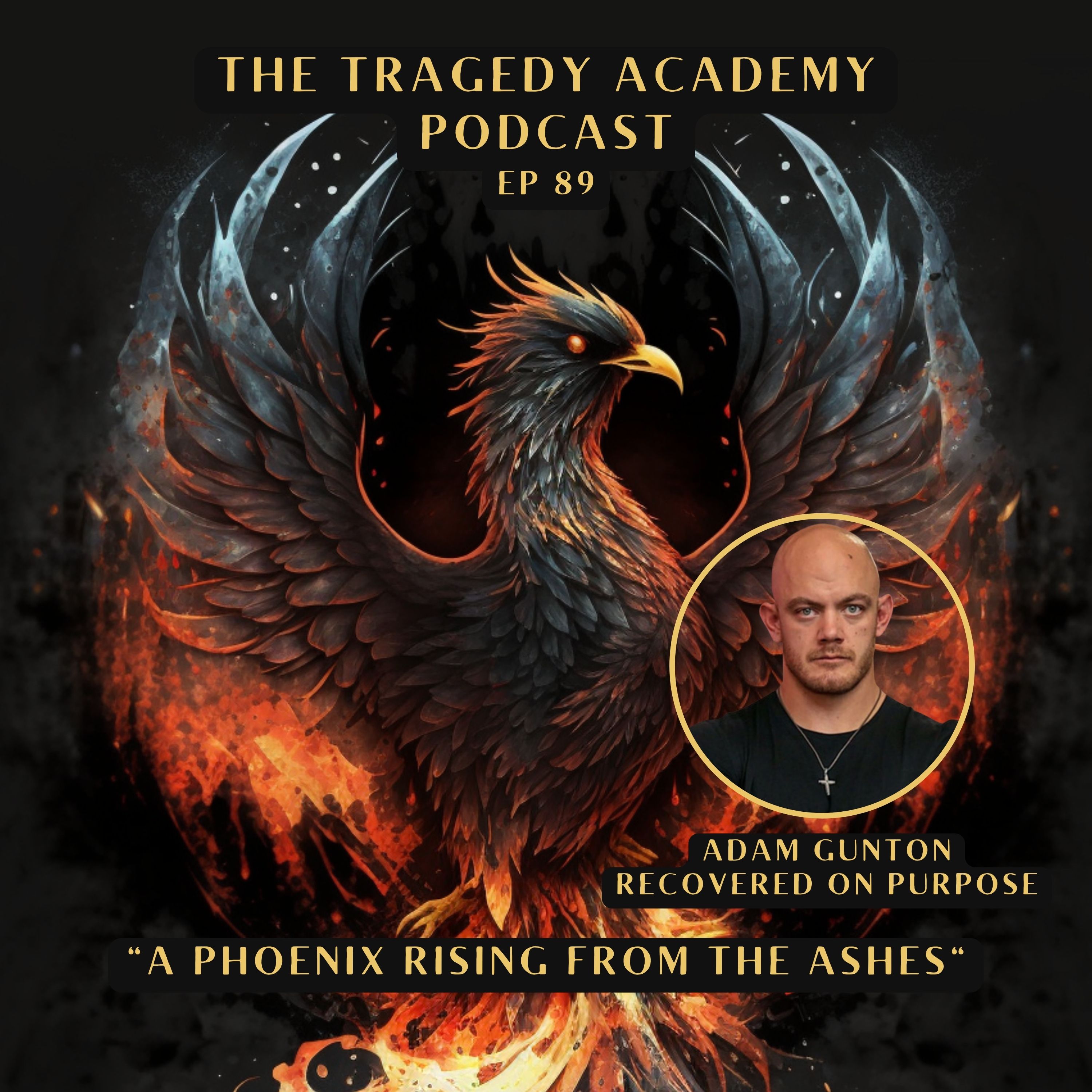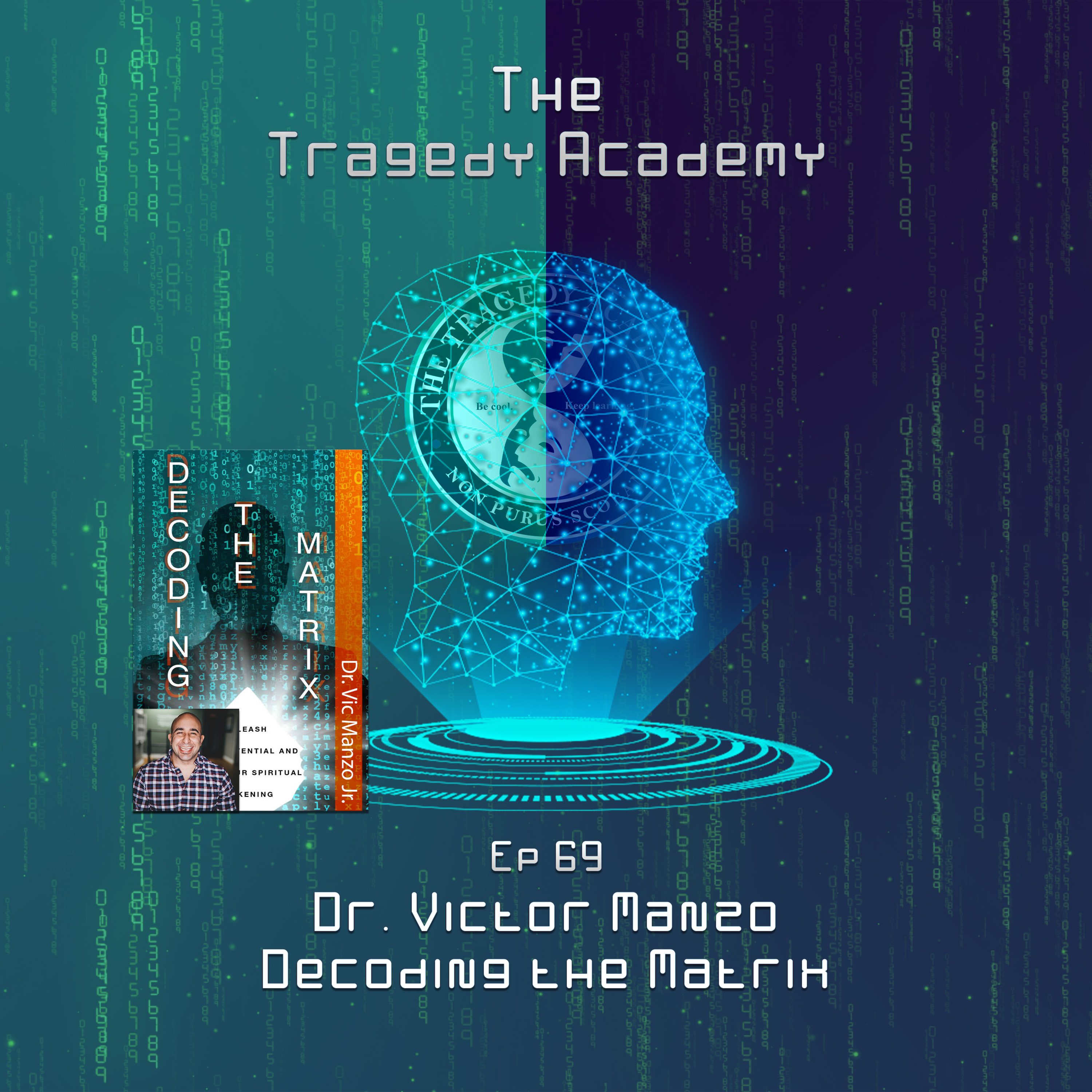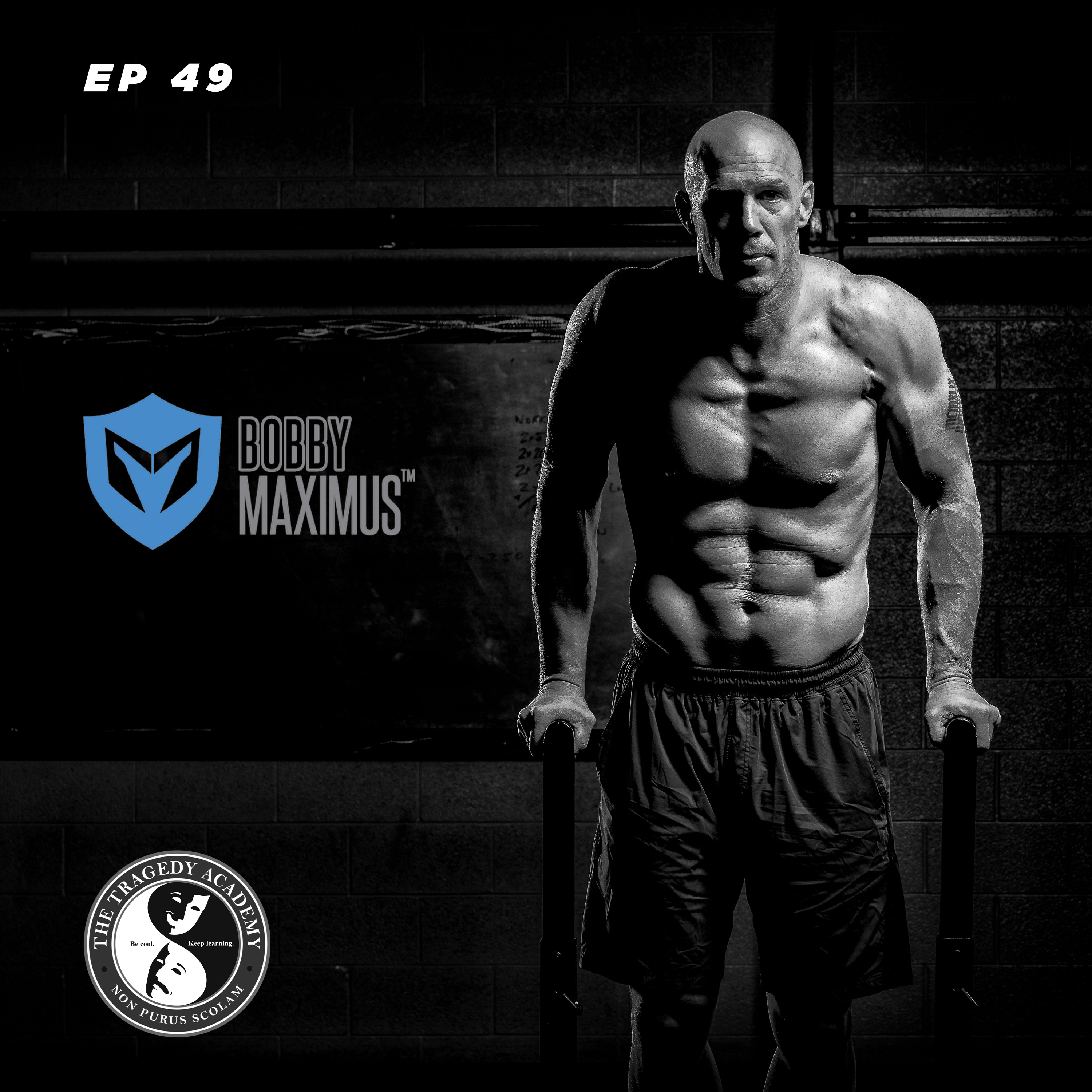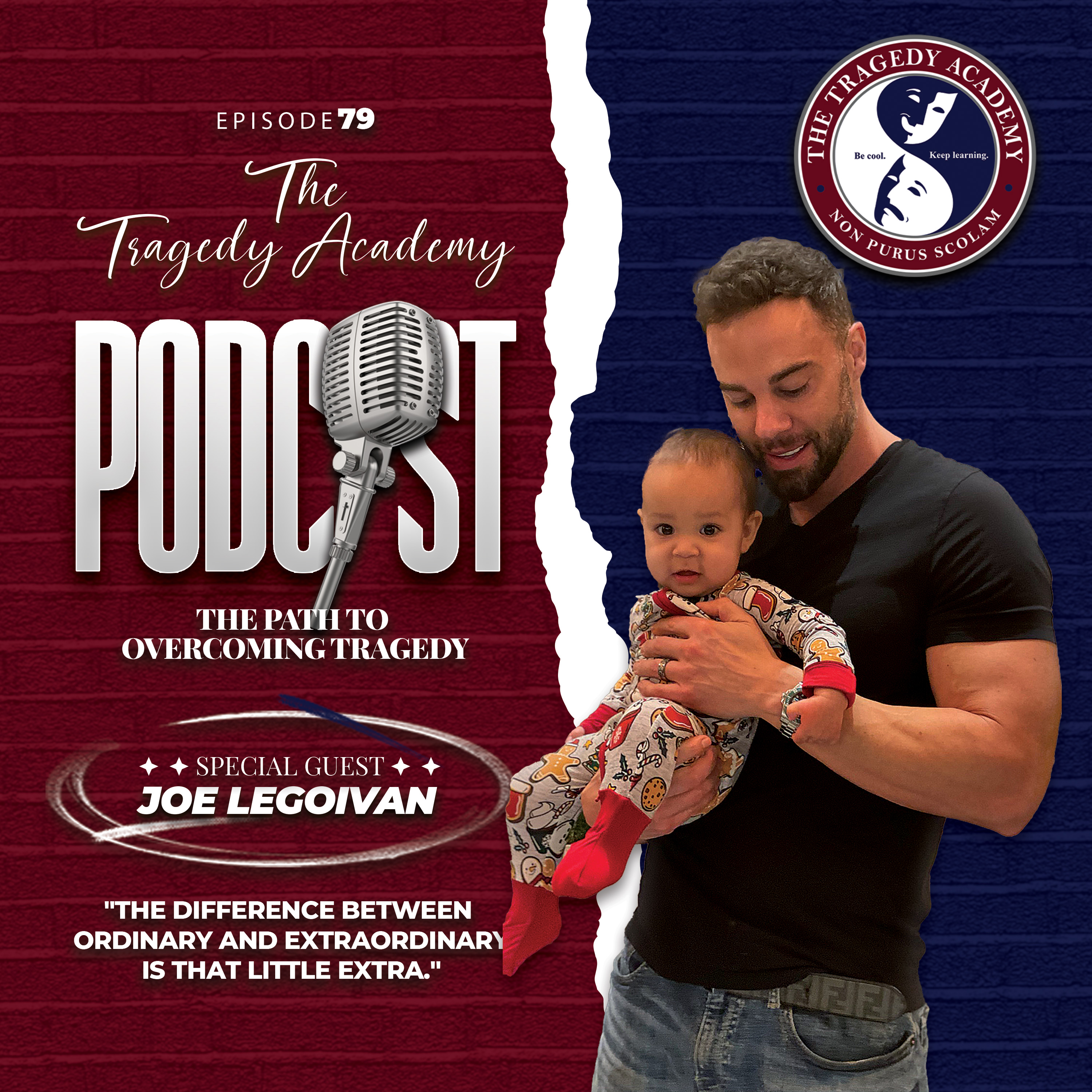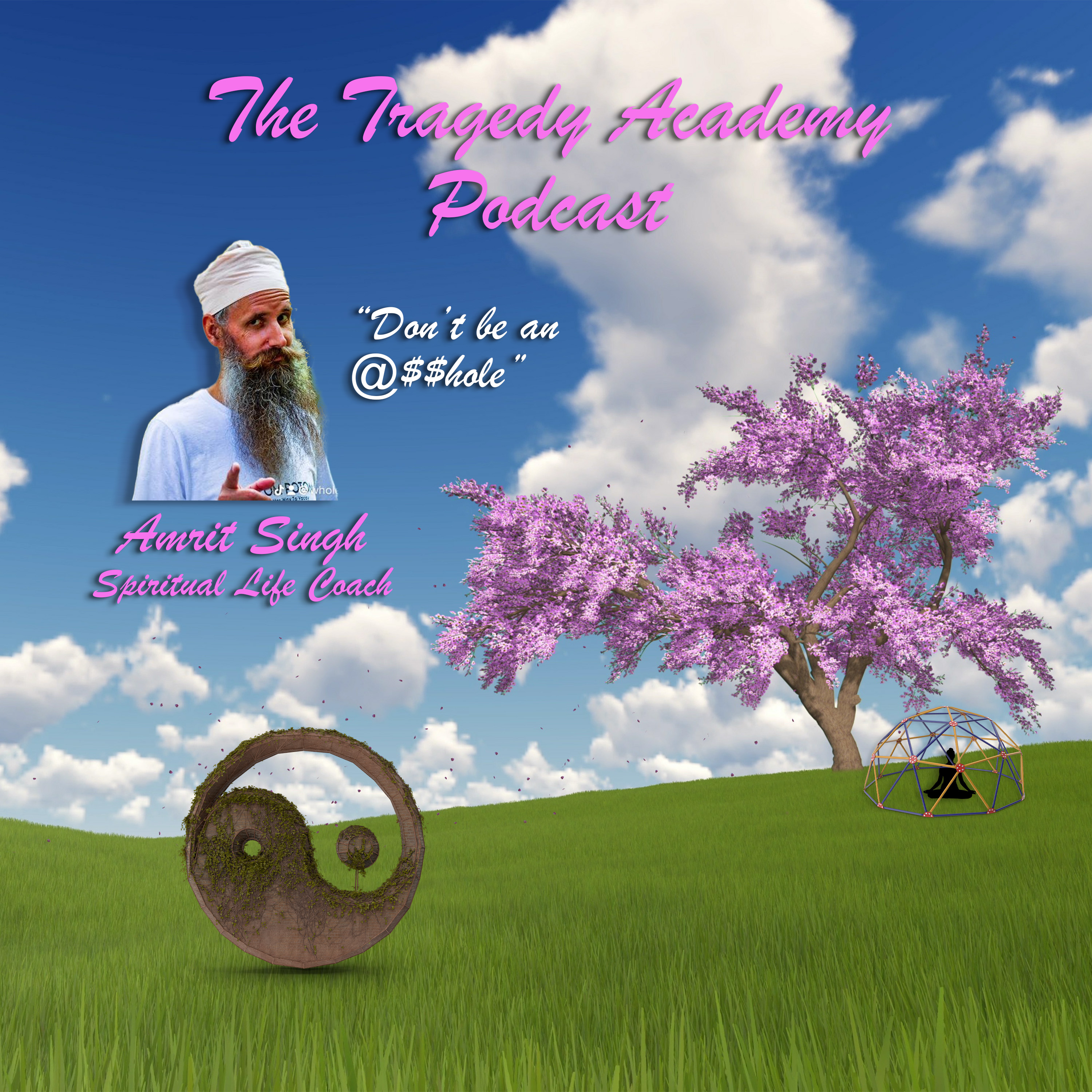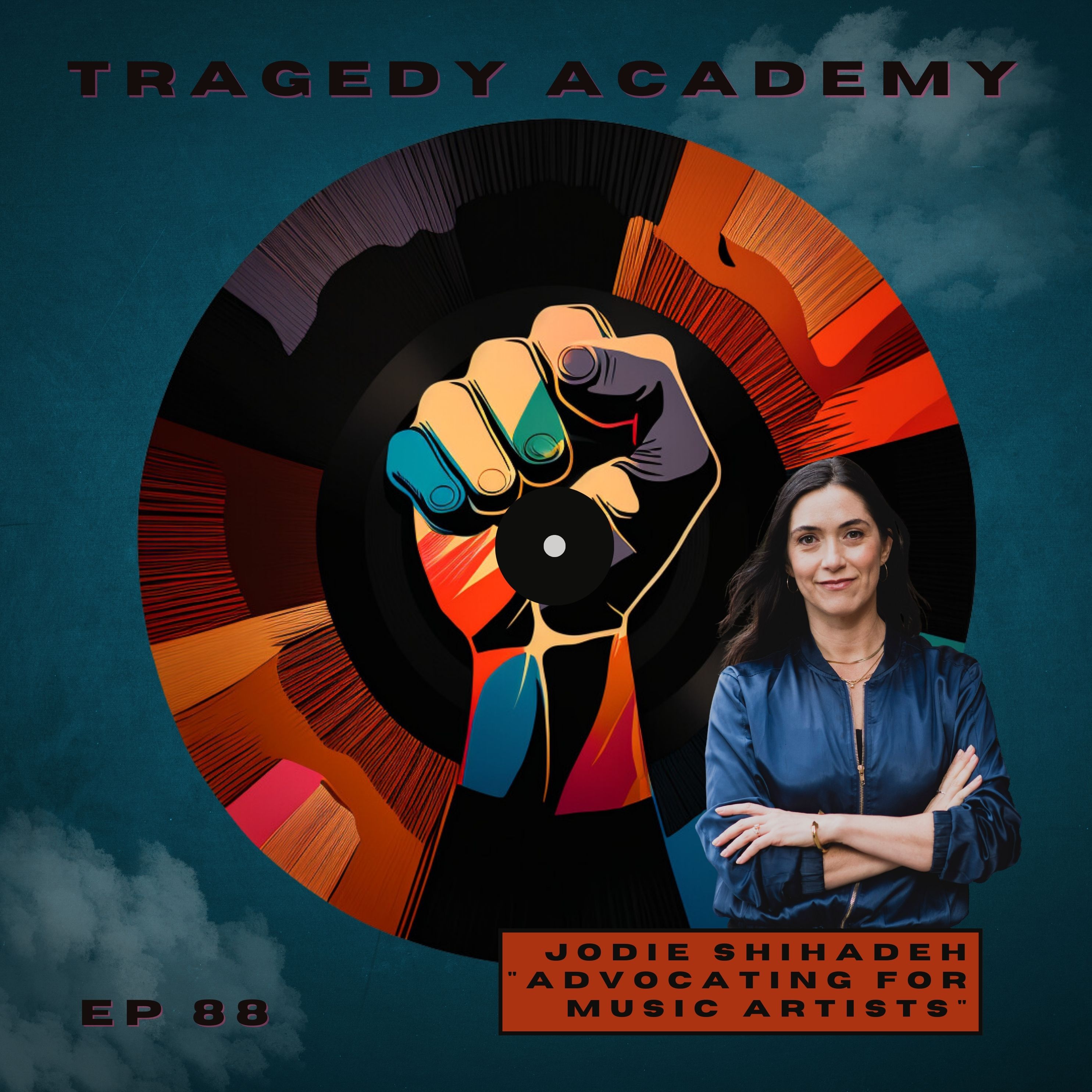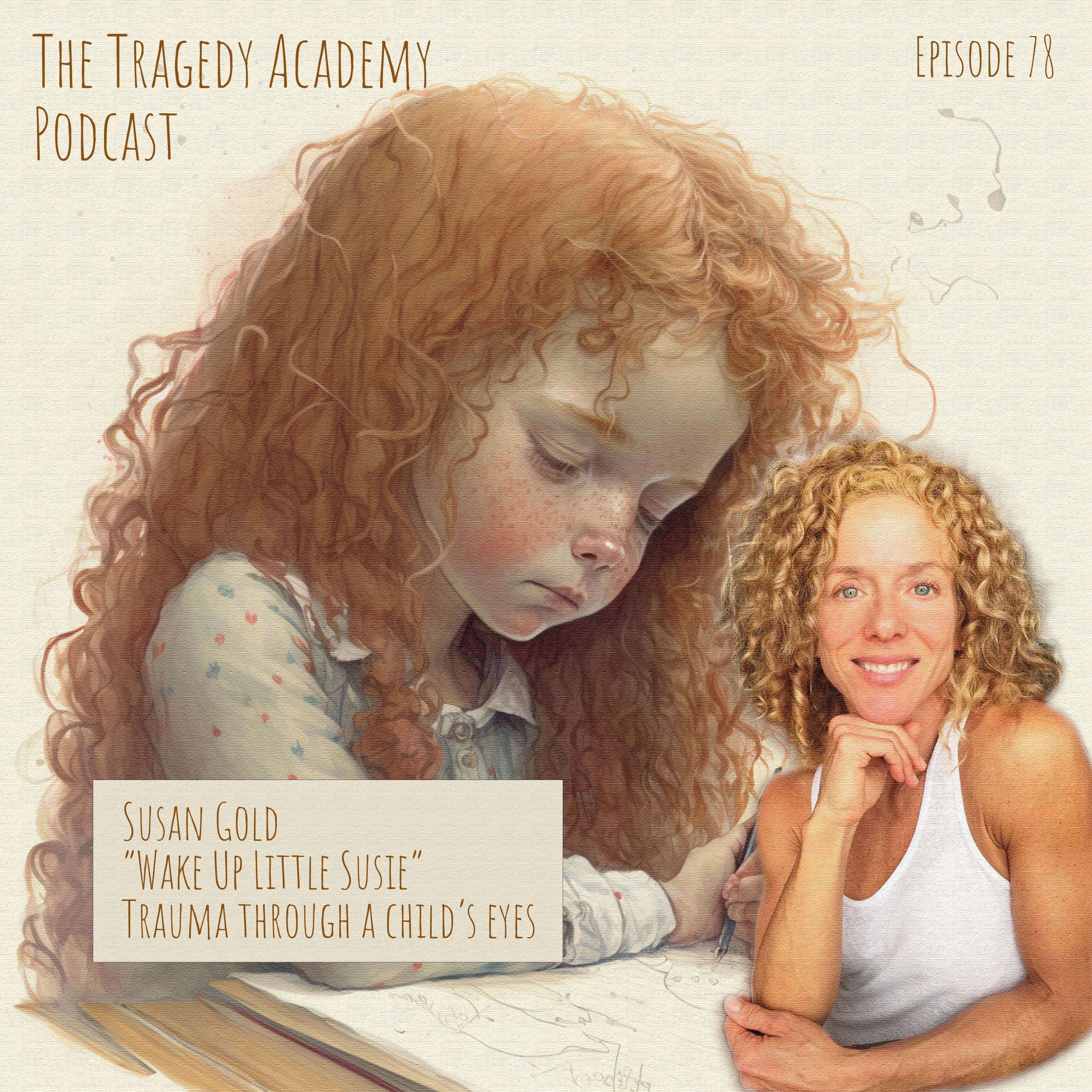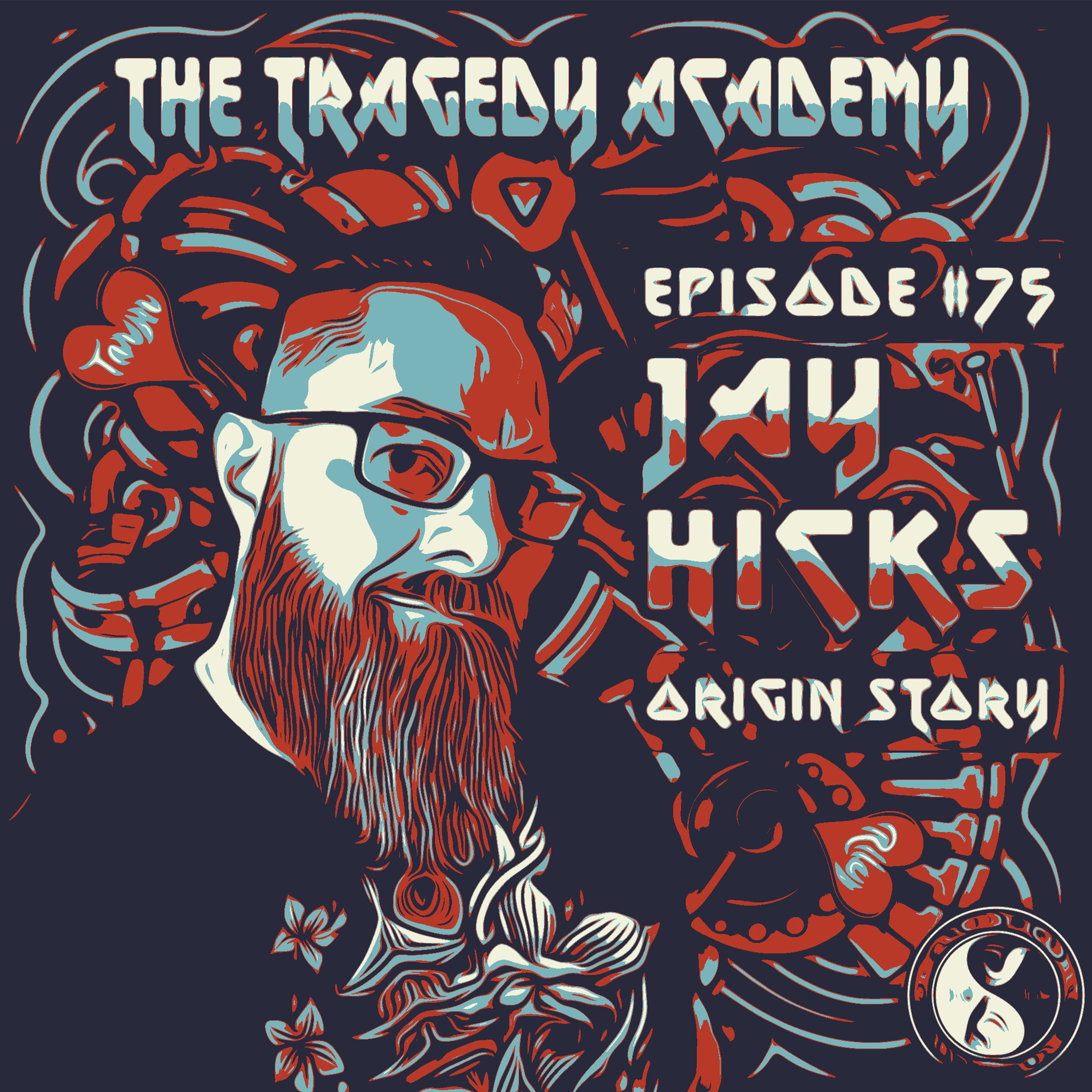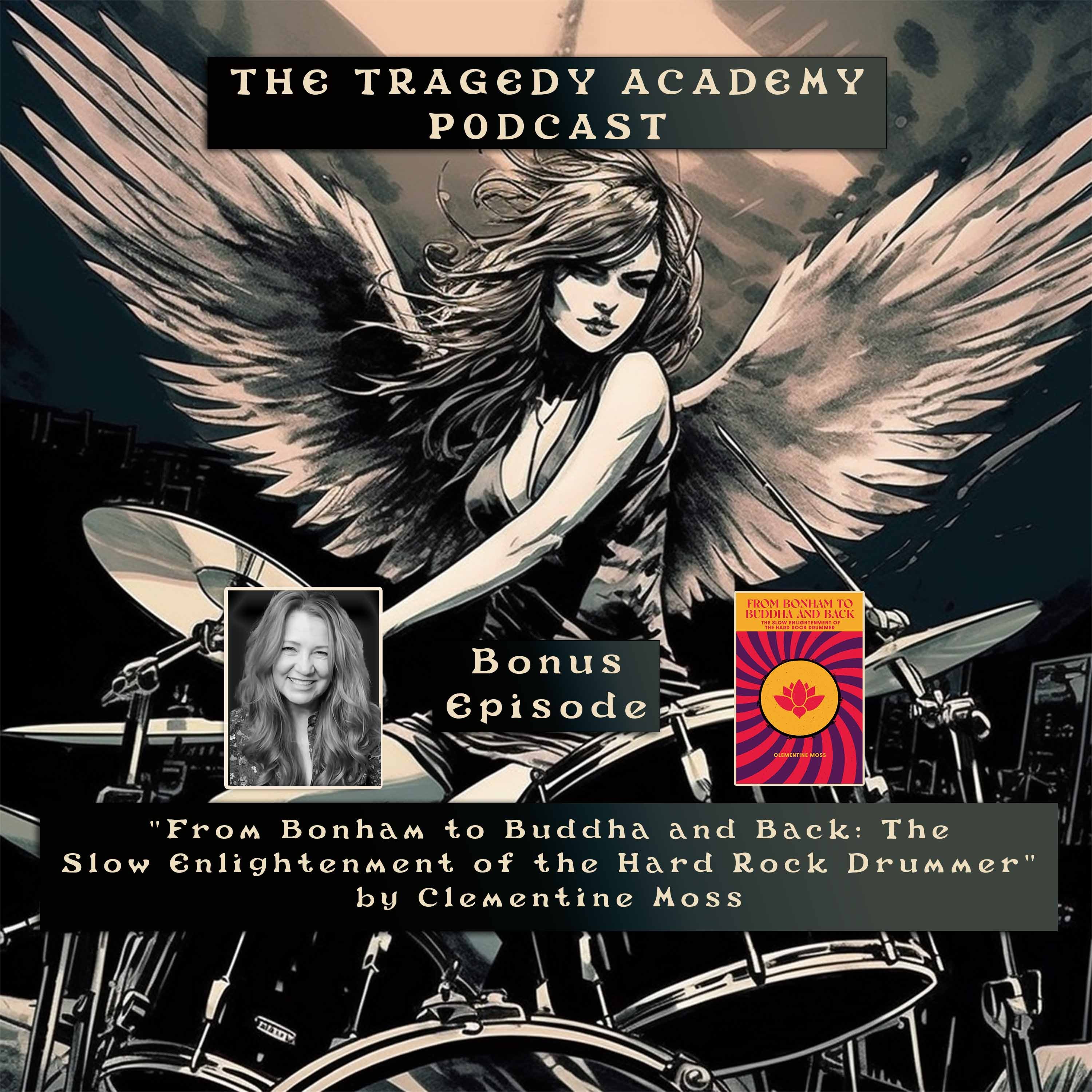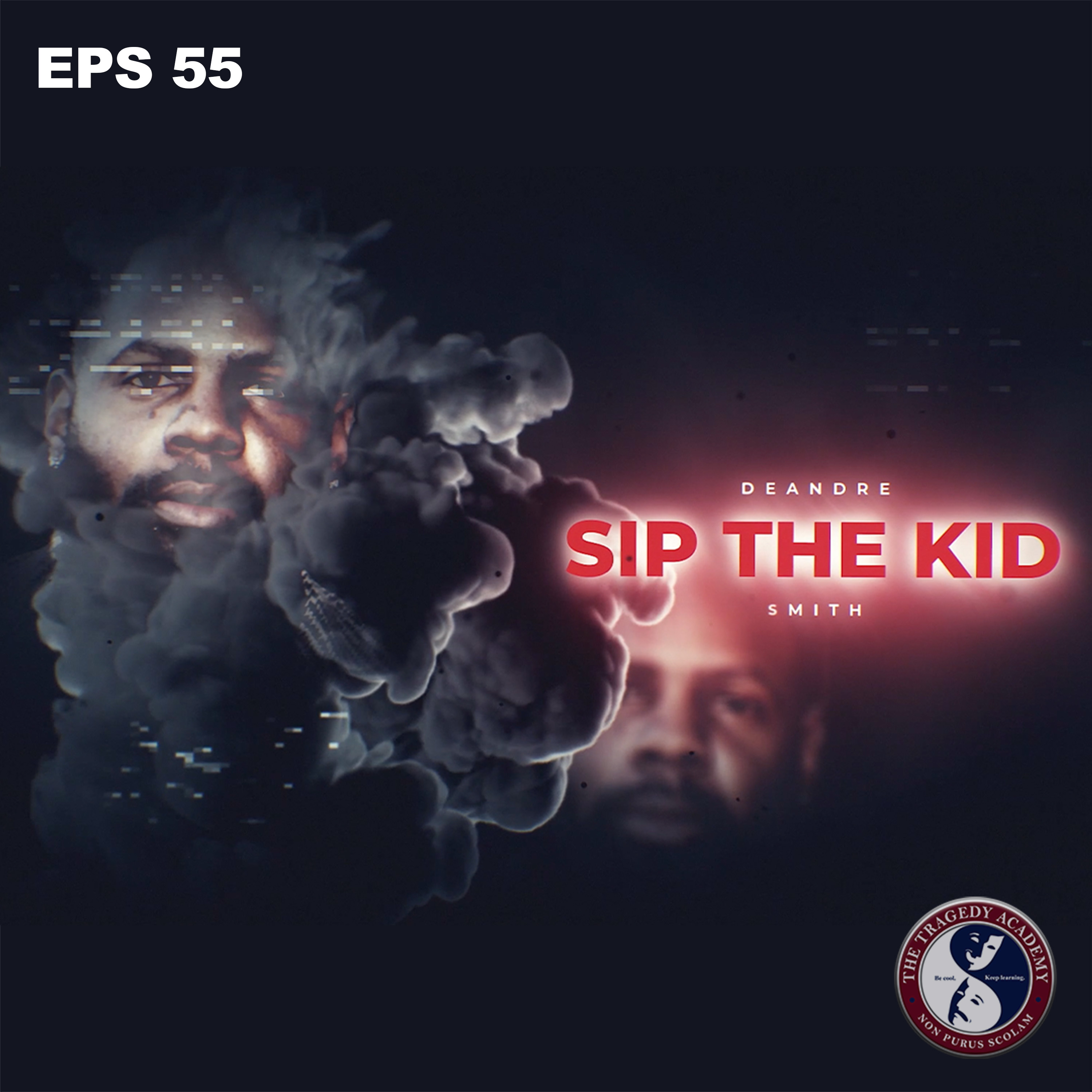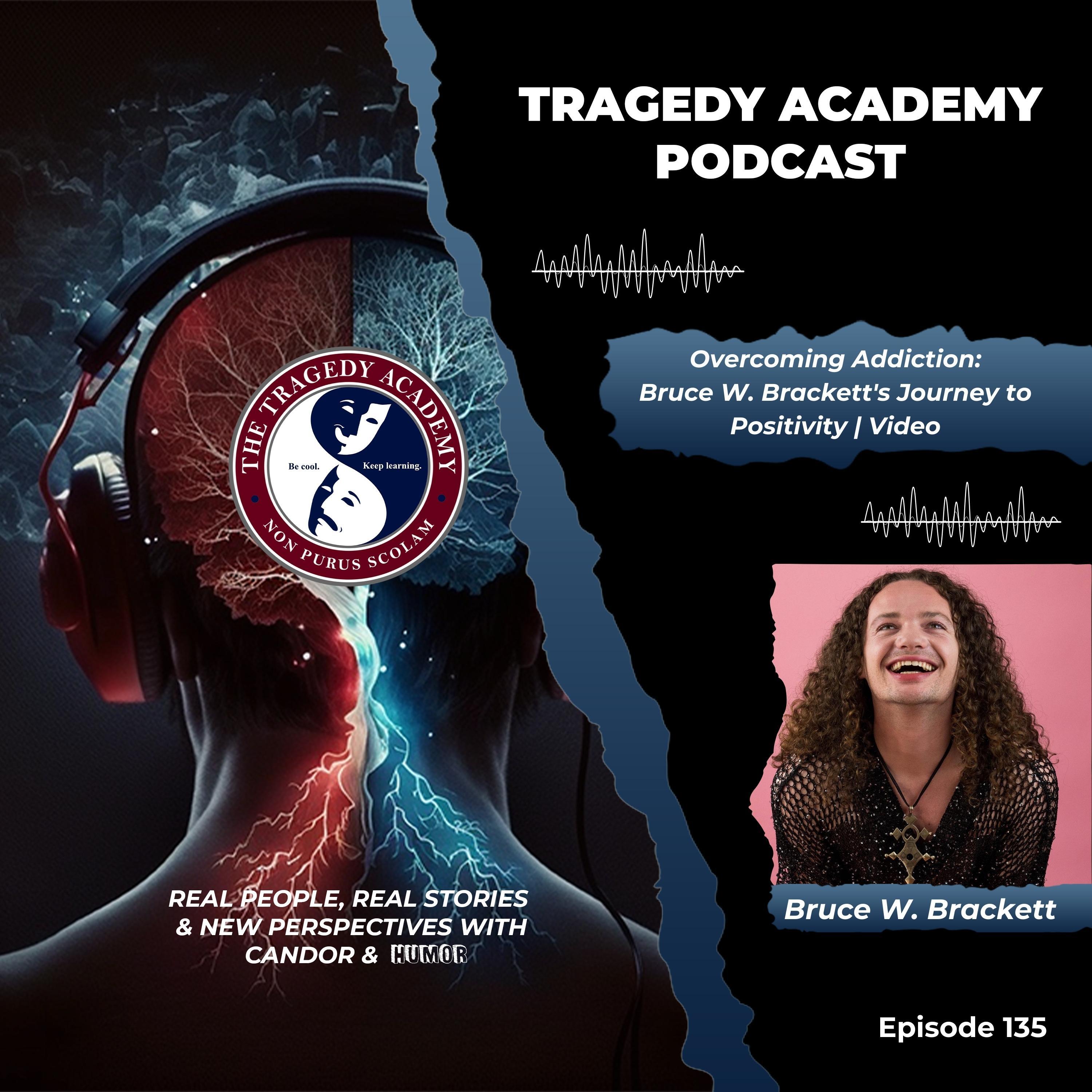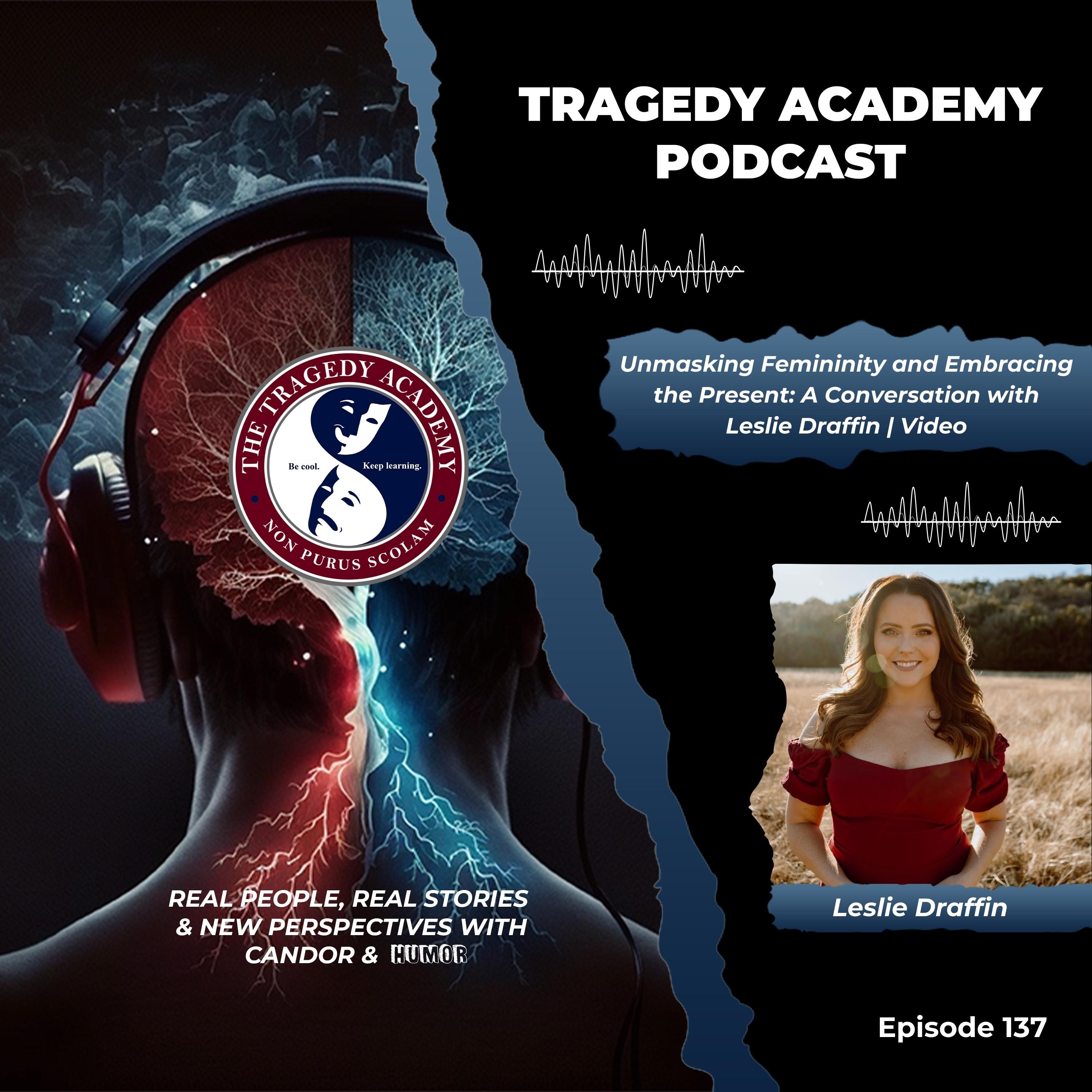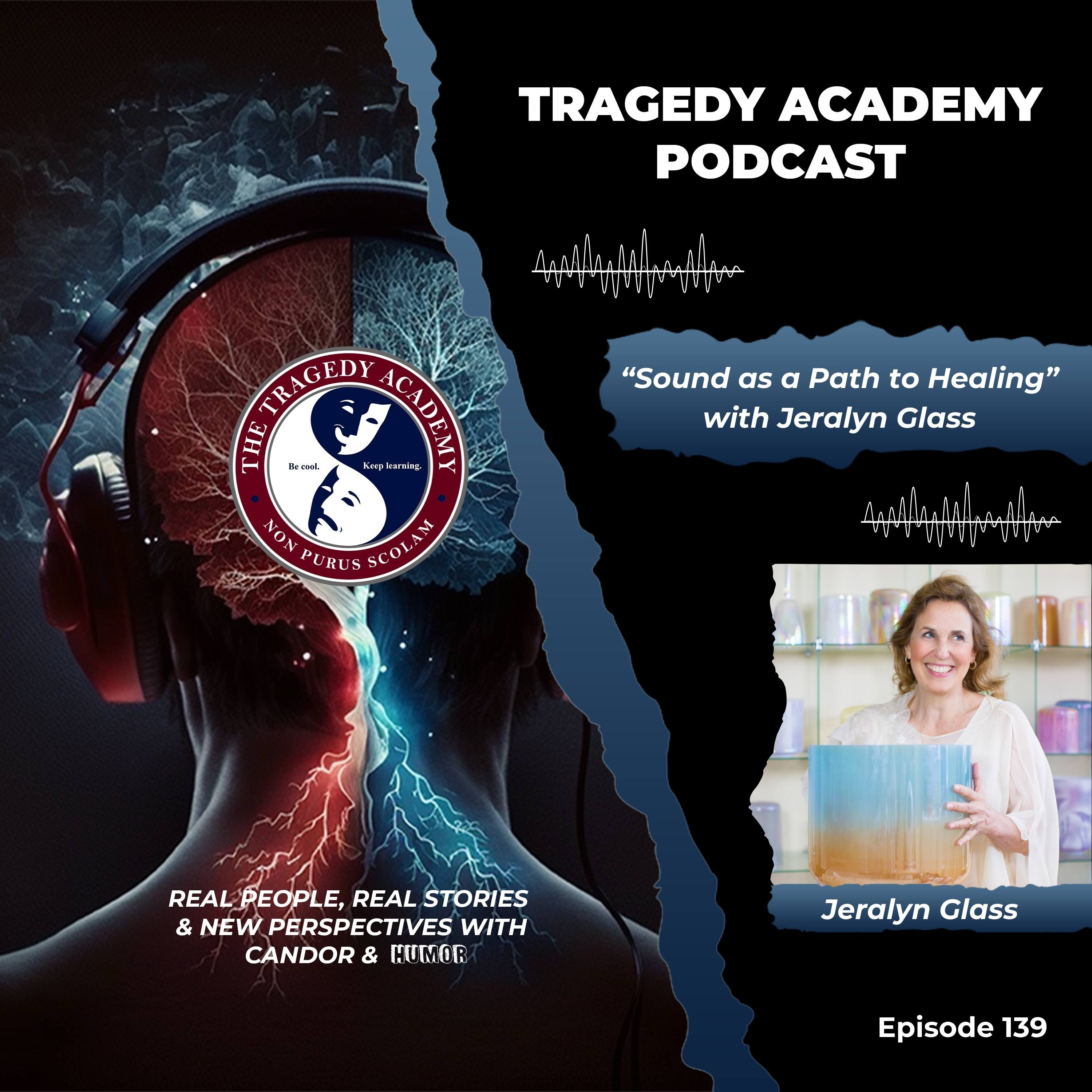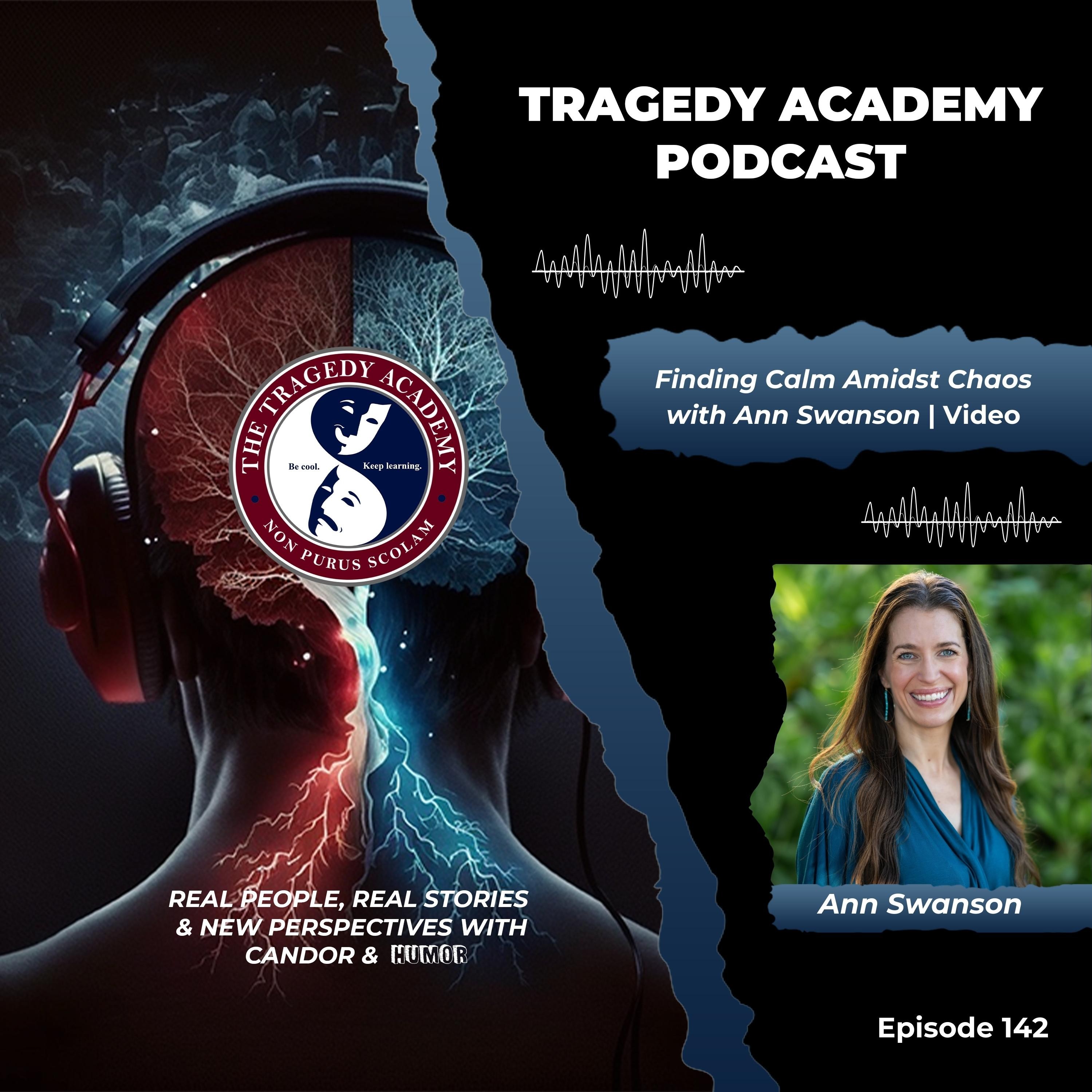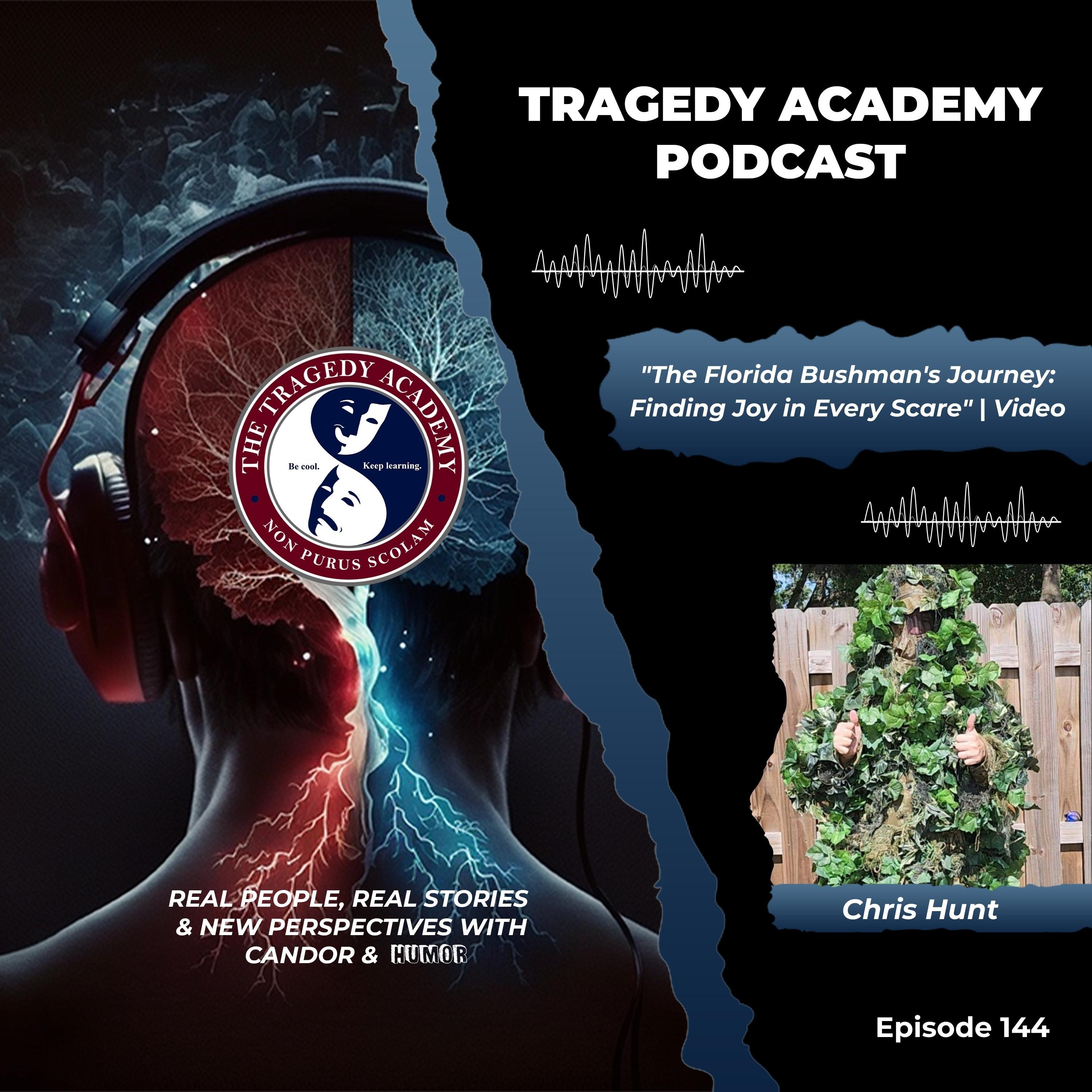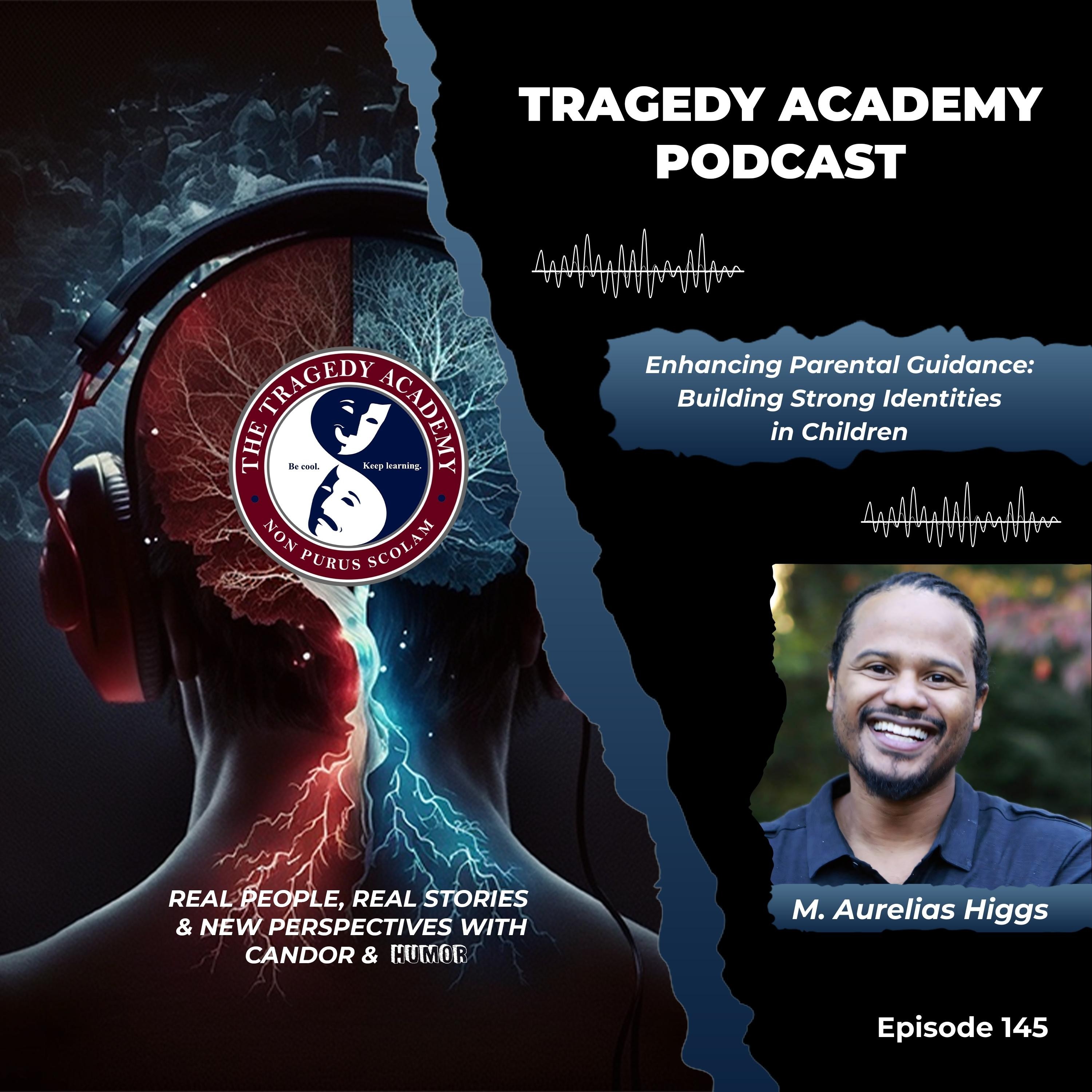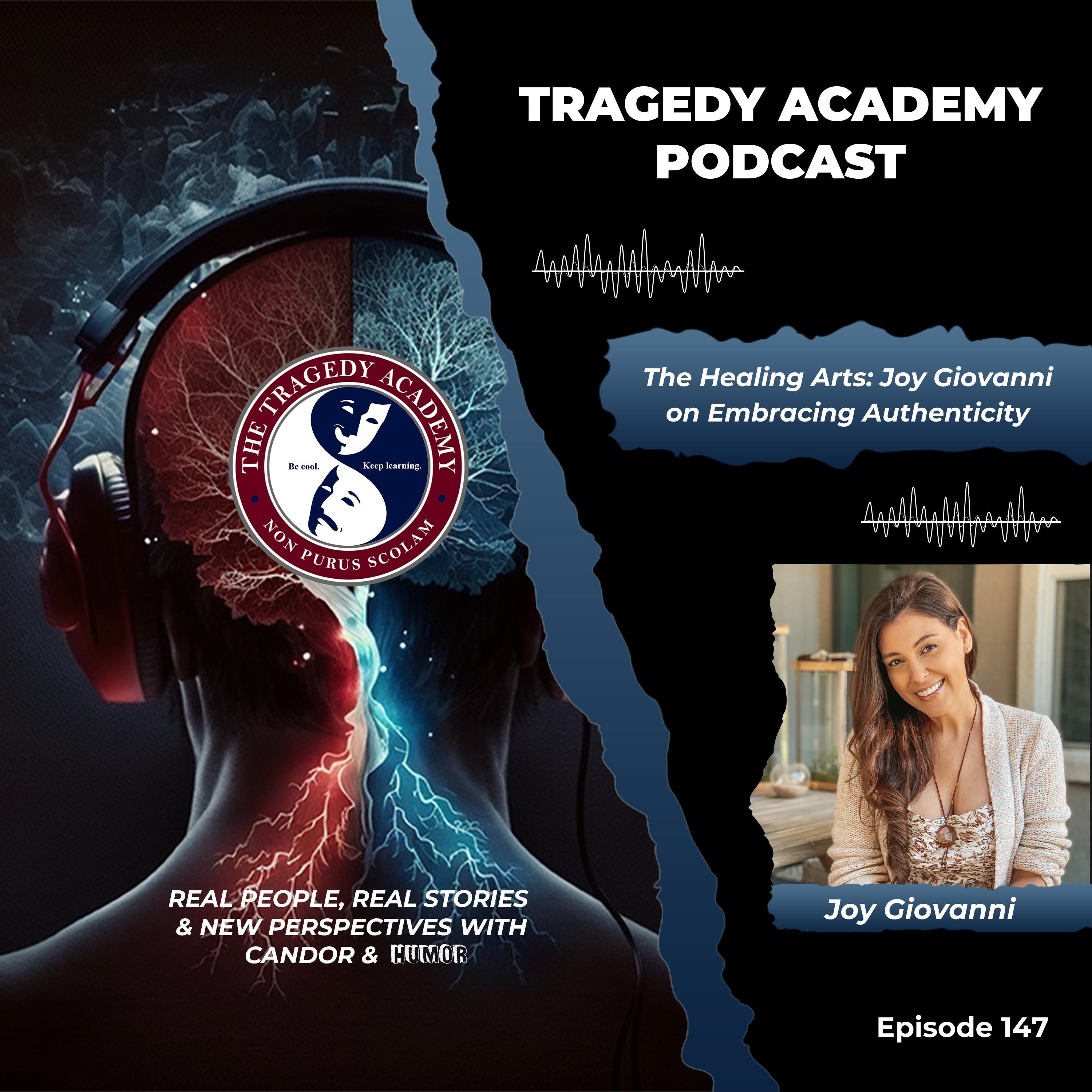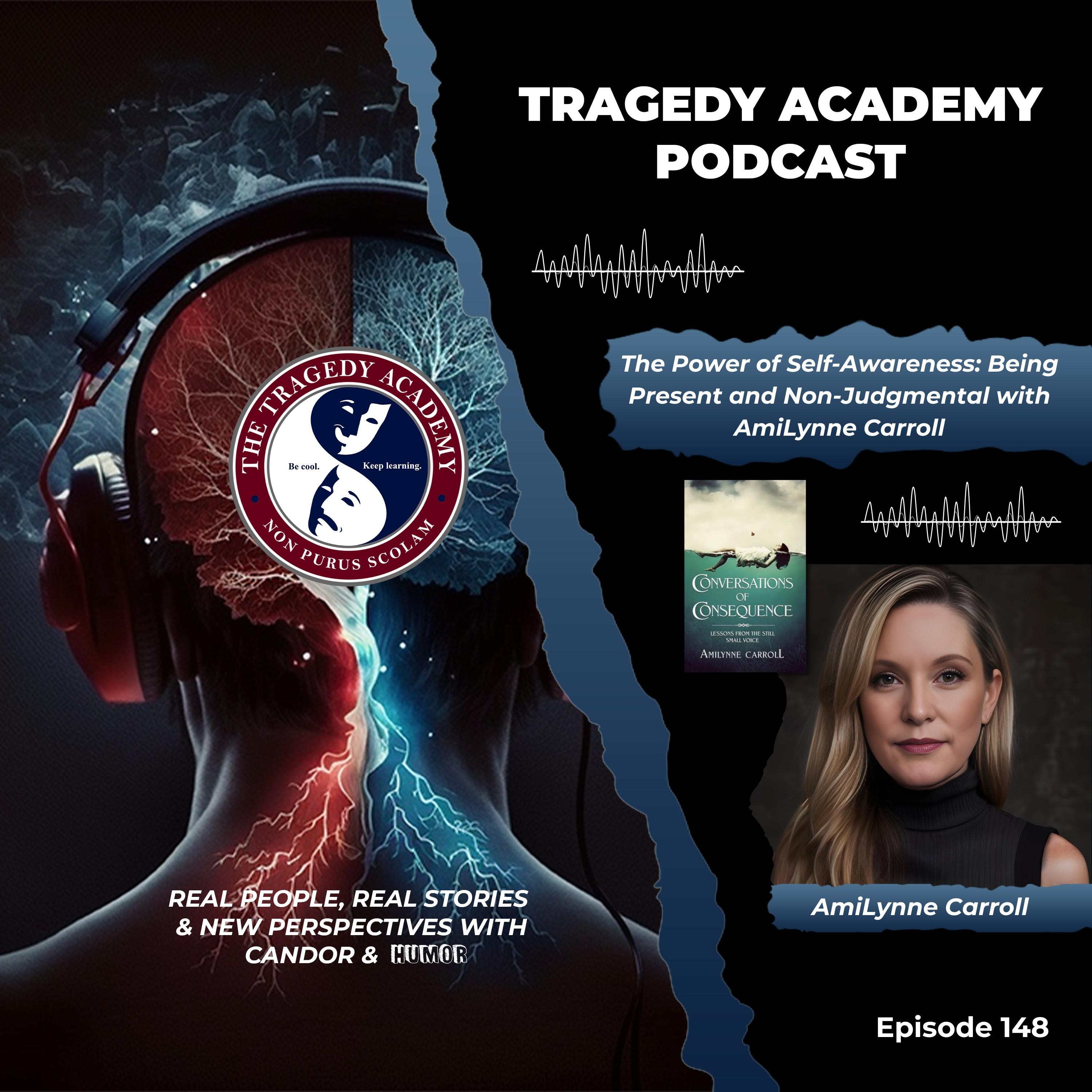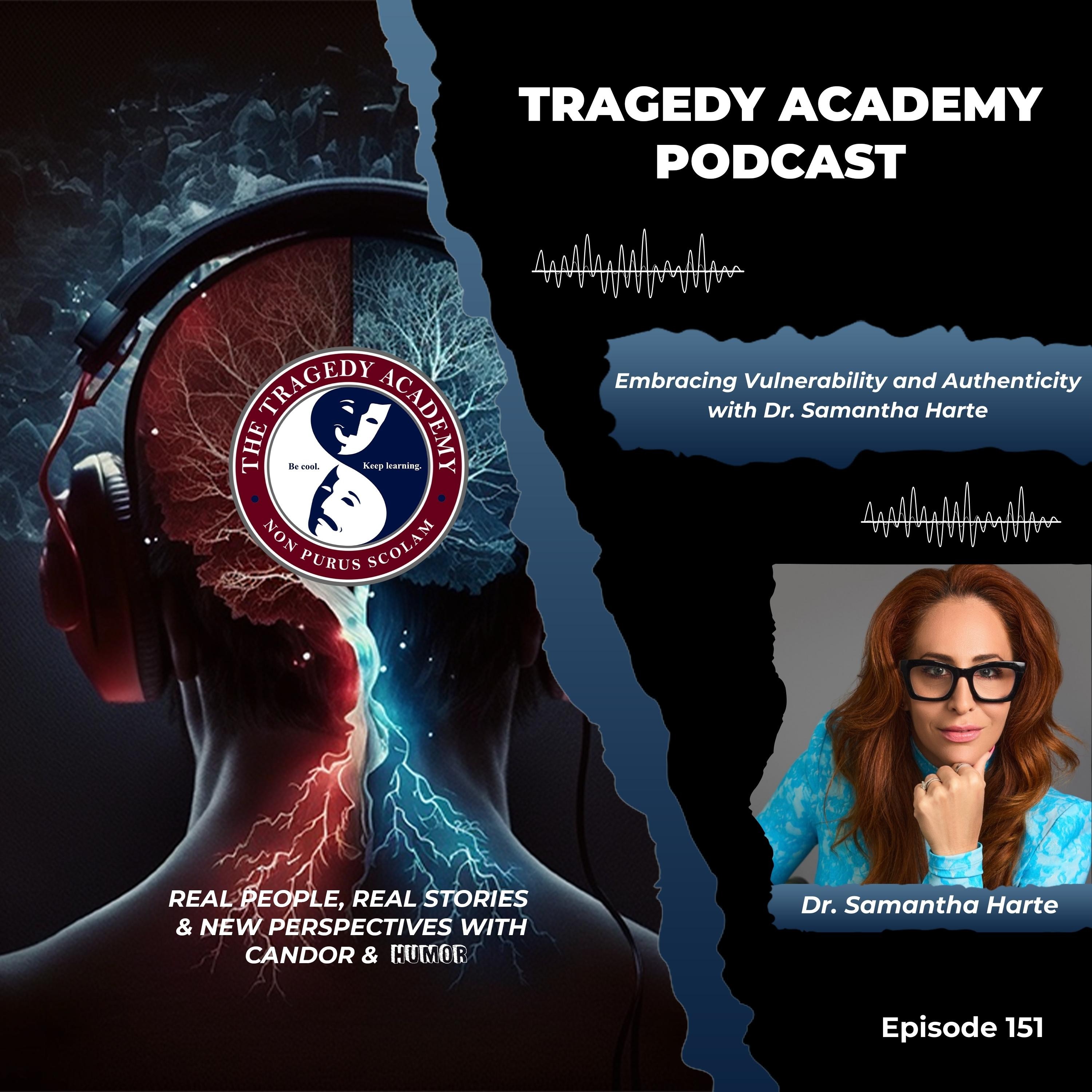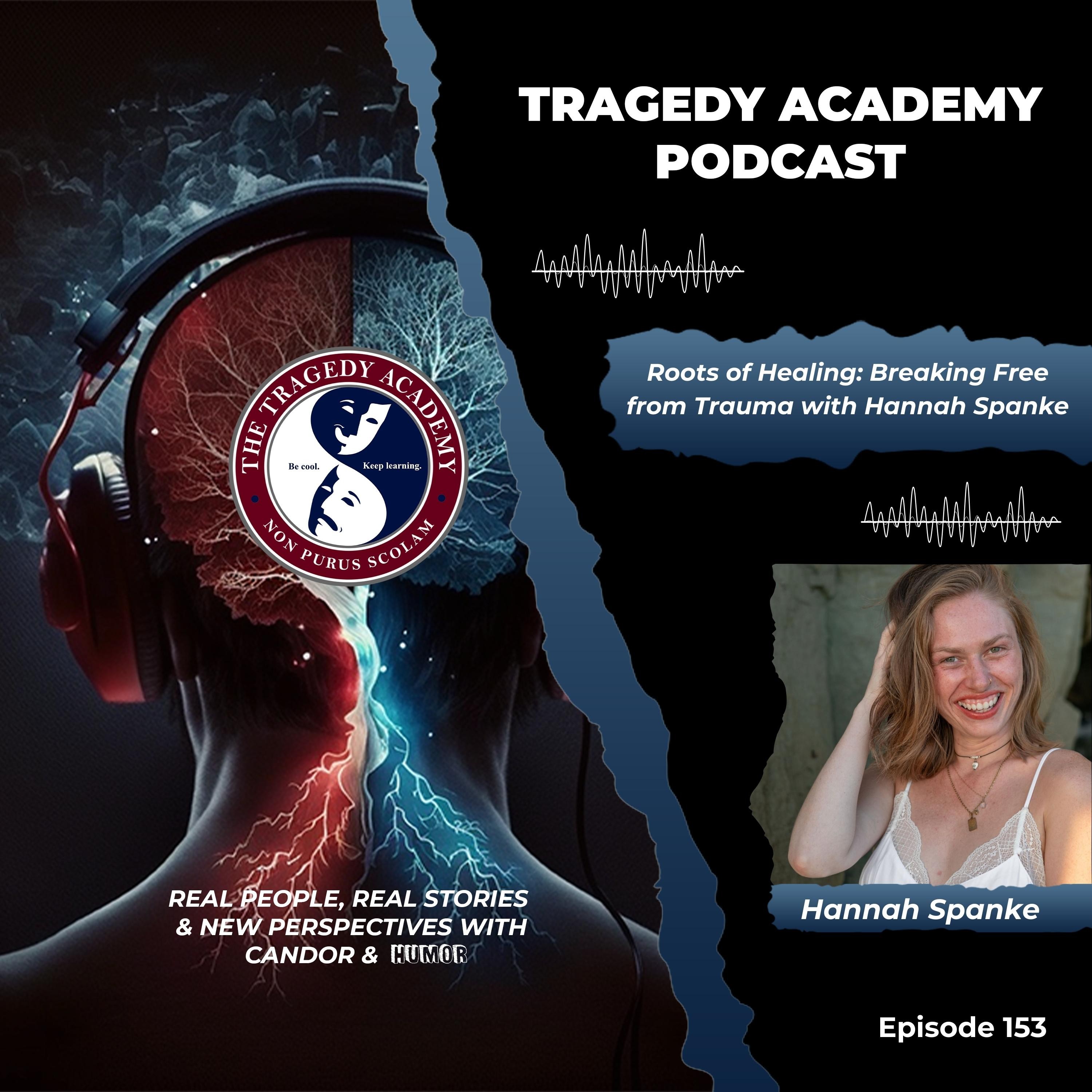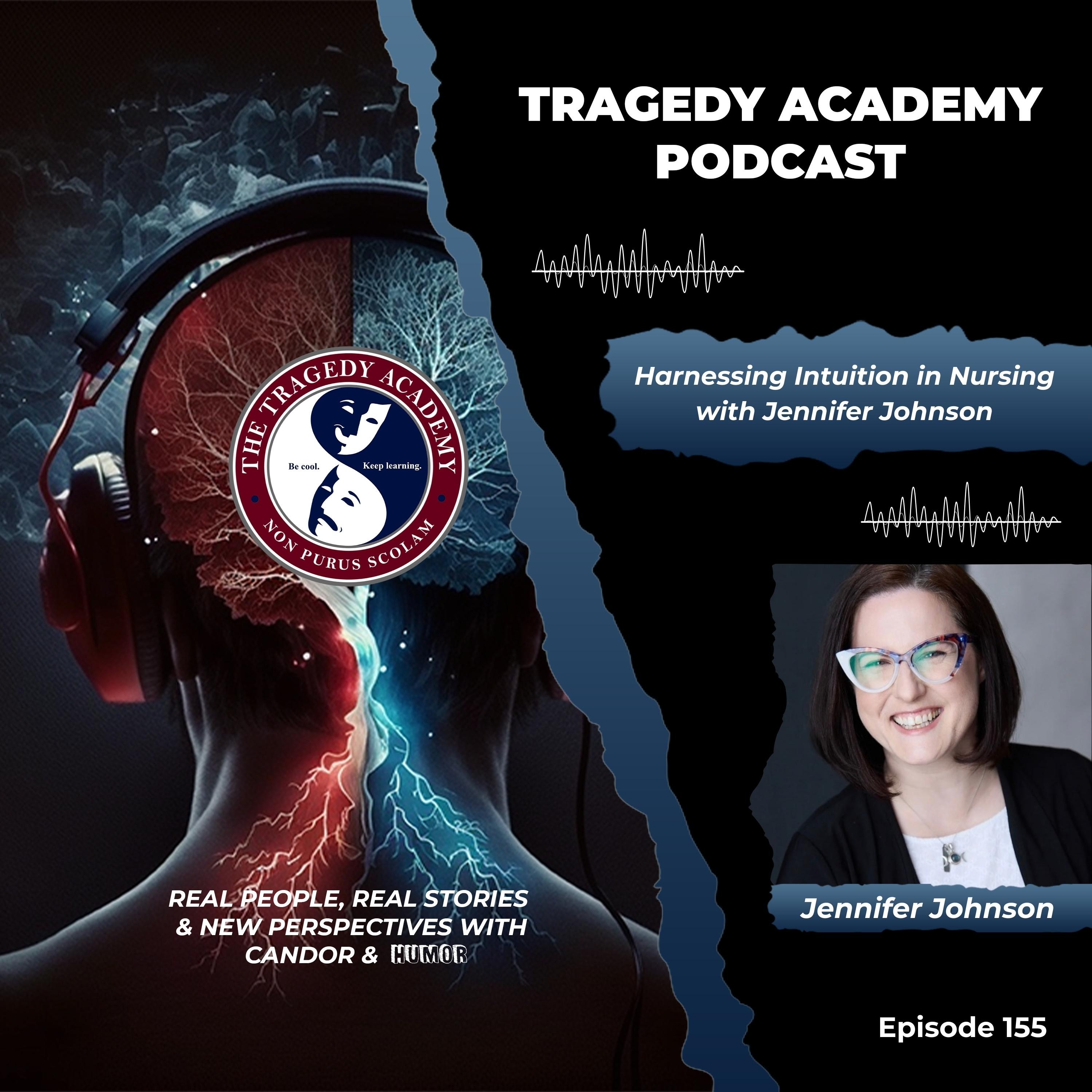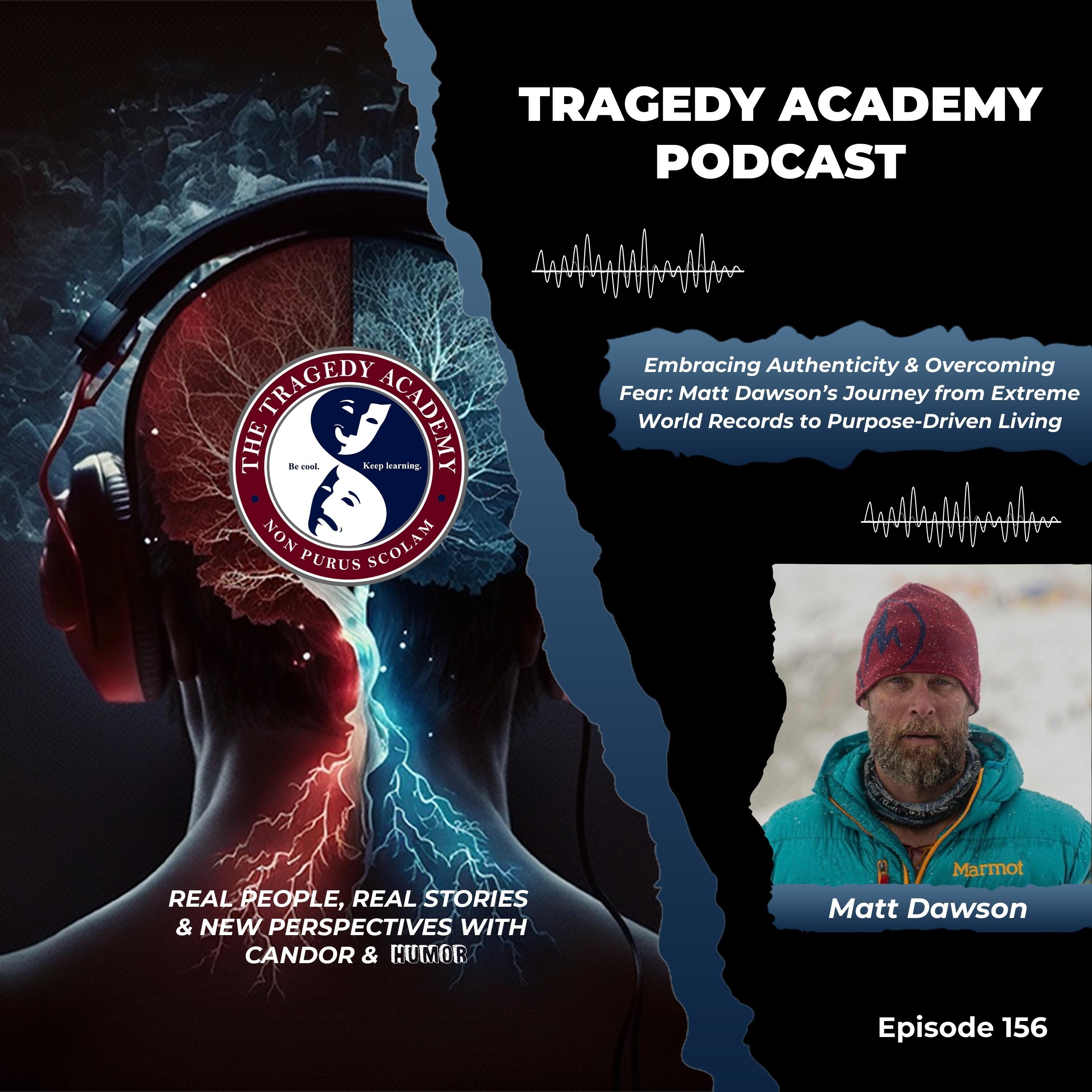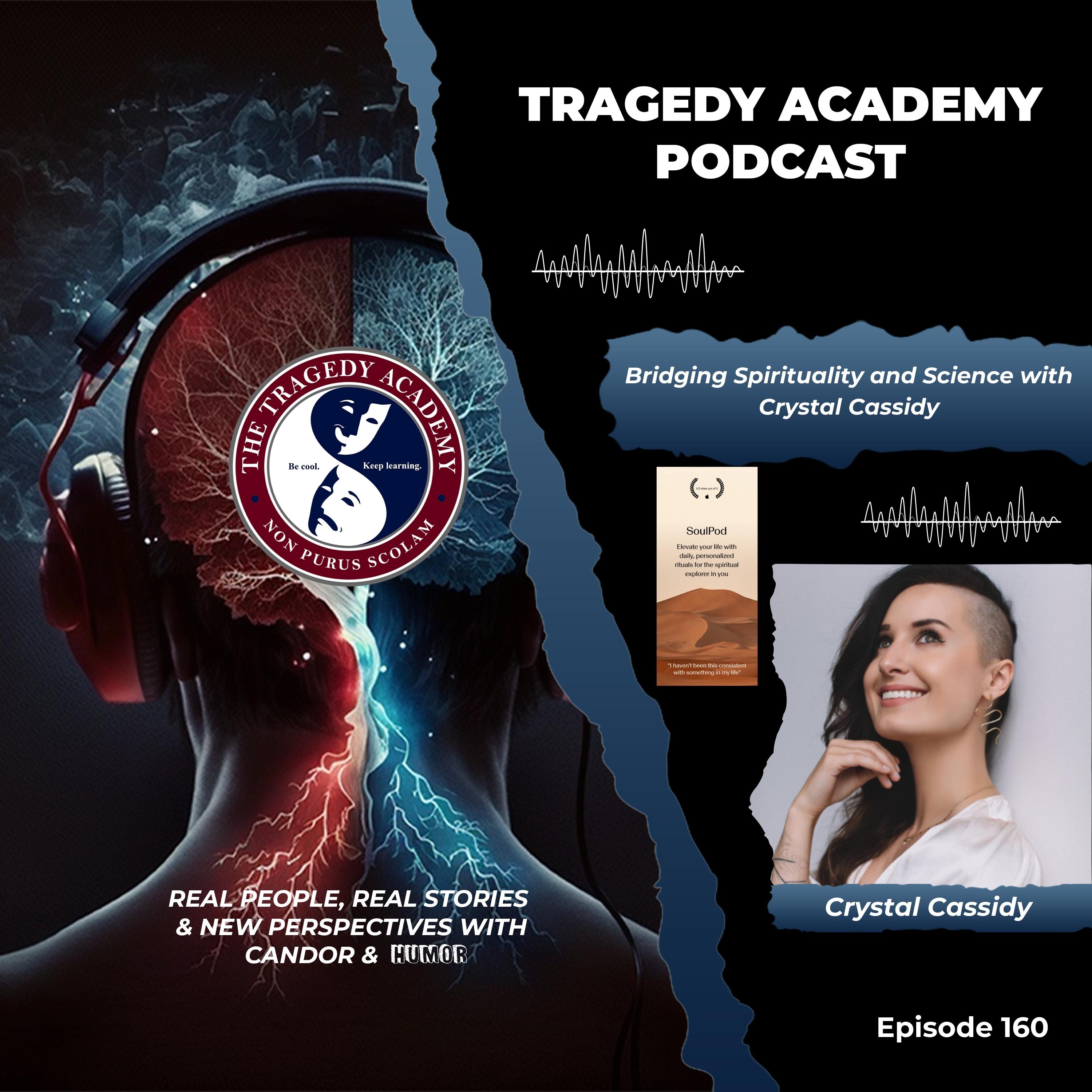Harnessing Positive Psychology: A Discussion on Take Two Minutes with Marc S. Fussell
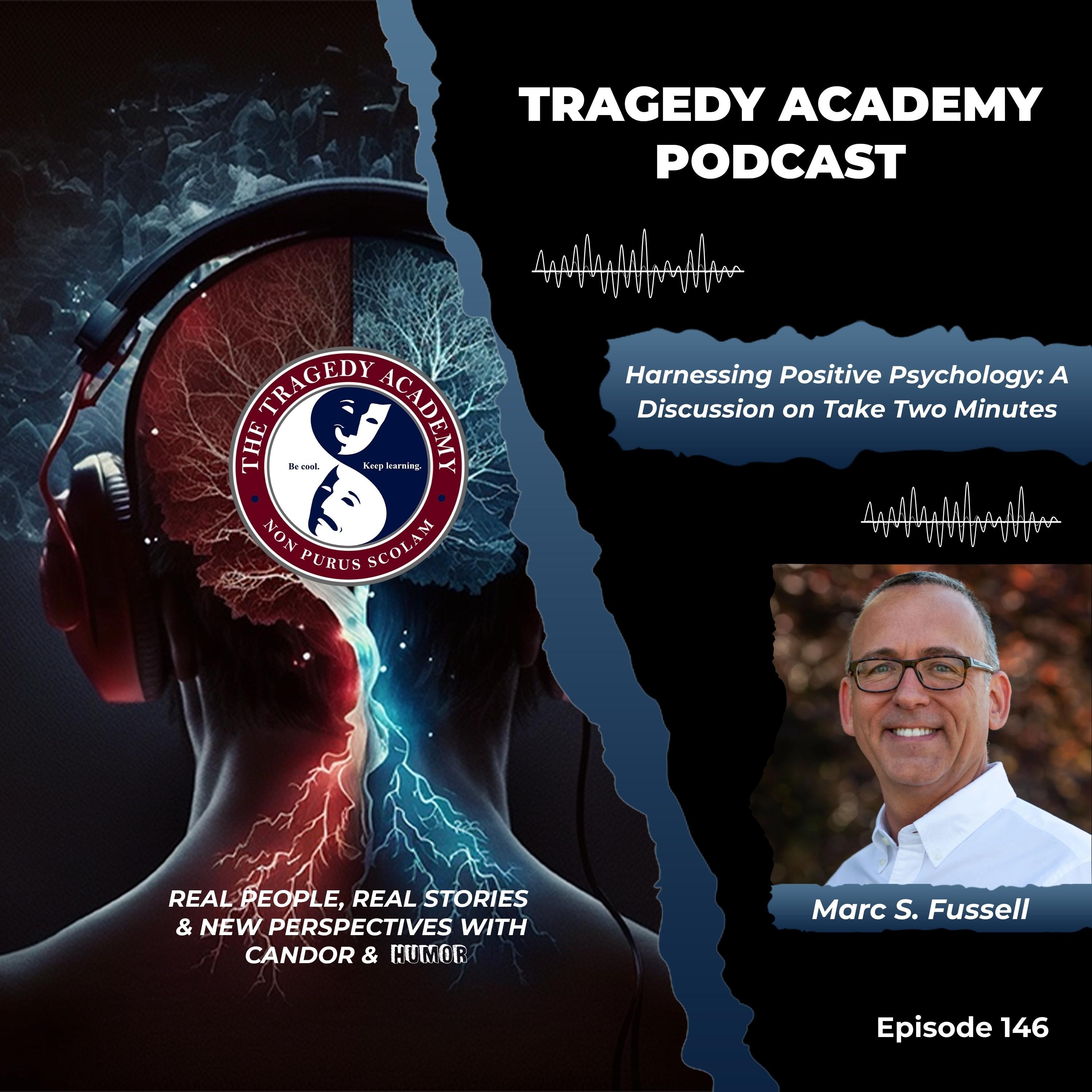
In this episode of The Tragedy Academy Podcast, host Jay welcomes Mark Fussell, the founder of the nonprofit Take Two Minutes. Jay and Mark delve into mindfulness, gratitude, and mental well-being. Mark explains the origin and features of Take Two Minutes, a web application that provides positive psychology activities, focusing on text messaging as the primary communication channel. The discussion explores the benefits of a gratitude challenge and proper sleep hygiene for mental health, emphasizing the importance of internal reflection and self-care practices.
00:00 Introduction and Warm Welcome
00:15 Meet Mark Fussell: Visionary Behind Take Two Minutes
00:29 The Power of Mindfulness and Gratitude
00:43 Coincidences and Connections
02:09 Exploring Take Two Minutes
05:31 The Gratitude Challenge
06:28 Meditation Insights and Practices
07:08 The Importance of Breath
20:49 Priming the Mind for Positivity
26:27 The Birth of Take Two Minutes
28:51 Spreading Positivity in Daily Interactions
29:17 Discovering Resilience and Happiness Research
30:17 Creating the Take Two Minutes App
30:24 The Importance of Self-Recognition
33:50 Embracing Challenges and Learning from Mistakes
35:58 Overcoming Anxiety Through Exposure
40:30 The Power of Sleep Hygiene
41:45 The Three Good Things Exercise
52:26 Final Thoughts and Call to Action
📲 Connect with Us!
Explore more about The Tragedy Academy: https://www.thetragedyacademy.com
🌟 Support and Grow With Us 🌟
🎧 Podcasting Made Easy: Build your stunning podcast website with Podpage:
Podpage: https://bit.ly/3LSCBh5. @podpagehq
📲Take your recording to the next level with
Riverside.FM: https://bit.ly/3ImjNWD @riverside.fm
👕 Get the Gear Loved Jay's t-shirt from the latest episode? Grab yours at Into the AM. @intotheam
Into the AM: https://bit.ly/431MLD5.
📘 Expand Your Mind Dive into our recommended reads at our Bookshop.
Bookshop: https://bit.ly/42pPHcv.
✅ Stay Updated – Subscribe!https://www.youtube.com/channel/UCEUXqlregig6vcrvuVNGlKg and never miss an episode.
📱 Follow Us on Social Media
- Instagram: @thetragedyacademypodcast
- Facebook:@TheTragedyAcademyPodcast
- Twitter: @Tragedy_Academy
- TikTok: @thetragedyacademy
💖 Support The Tragedy Academy. Your support helps us keep bringing meaningful content. Consider donating through PayPal or BuyMeACoffee.
PayPal Donate: https://www.paypal.com/donate?hosted_button_id=YMU9L4TBWX6AG
The Tragedy Academy is a show created to bridge societal divides in a judgment-free zone using candor and humor.
Be cool. Keep Learning.
[00:00:30] Jay: I love that shirt man. I like how the collar on the inside has a different color. That's a cool shade of blue too. All
[00:01:08] Marc S Fussell: you very much. I appreciate that.
[00:01:10] Jay: Welcome to the Tragedy Academy, a show created to bridge societal divides in a judgment-free zone using candor and humor.
[00:01:16] Meet Mark Fussell: Founder of Take Two Minutes
[00:01:16] Jay: My name is Jay, and we are joined today by Mark Fussell.
[00:01:20] Jay: He's the visionary founder behind the nonprofit Take Two Minutes. I've been using it for about four or five weeks now, and I have to tell you, it's been quite impressive. [00:01:30] Mark has an extensive IT background but has applied that to mindfulness, gratitude, and helping others. Mark, how are you doing today, man?
[00:01:39] Marc S Fussell: I'm very well. I appreciate you having me on, Jay. Thank you.
[00:01:41] Jay: Super excited to have you on. Not many people are trying to affect change in this direction, and we just found out a moment ago that we have something in common that we didn't realize until you went looking through some of our old episodes.
[00:01:57] Marc S Fussell: That's right. Yeah. We, you interviewed Matt Zeman a while back, who is a friend and also co-founder of Take Two
[00:02:03] Jay: Look at this. I knock them all out.
[00:02:05] The Power of Mindfulness and Gratitude
[00:02:05] Jay: This that's really coincidental or serendipitous, or I don't know how you would describe that, but I do firmly believe that. The energies that we operate on are like a radio frequency. And when you're dialed into a certain station, your people will listen to you and you will find each other because of that.
[00:02:25] Jay: And I'll be in the same room with others. You
[00:02:28] Marc S Fussell: good guy. I [00:02:30] haven't, I'm going to follow, I'm going to listen to that podcast. I haven't done so yet. I just recognized it late last night. So I'll make sure I take a listen.
[00:02:37] Jay: know how awesome it'll be
[00:02:39] Marc S Fussell: Oh yeah. Yes. I get to talk to Matt about, we try to connect on a conversation to help people about once every three weeks. So we bought a half hour, an hour conversation, about every three weeks it gets published. And he has great things to say. he has a lot of knowledge, obviously, as in the psychedelics area.
[00:02:58] Marc S Fussell: So it's always good to hear from him and hear those perspectives and also how he tries to apply that to take two minutes. Sometimes you get people to use take two minutes in conjunction with their journey.
[00:03:09] Jay: that's honestly one of the coolest things that you can do because I can tell you In utilizing take two minutes and you know what before we go any further I'm gonna let you describe what take two minutes is so that people can understand what it is that we're actually referencing here It's when you Time and egg and boil it, right?
[00:03:29] Jay: And then [00:03:30] after They'll be like, what are they talking about?
[00:03:33] Marc S Fussell: It's, yeah, it's the hard boiled egg. It's how long you have to boil it for that perfect consistency.
[00:03:38] Marc S Fussell: That's
[00:03:38] Jay: is actually a tick
[00:03:39] Jay: tock
[00:03:40] Jay: glad you stayed around
[00:03:45] Marc S Fussell: I'll try to give you the, as short as version as possible.
[00:03:48] Exploring the Take Two Minutes App
[00:03:48] Marc S Fussell: I say that because I can talk about how take two minutes started, how I got to where it's, I can tell you all about, and obviously I'll talk about that more than people probably want to listen to, but take two minutes at a high level is a, Web application is called the progressive web application just meant for your phone, but it's a web site that help people with mental well being through activities that were proven in the area of positive psychology.
[00:04:10] Marc S Fussell: So we have multiple activities. There are many competitors out there, I think, and Take 2 Minutes is just another one of those applications to help people with mental well being. The difference in Take 2 Minutes, the difference we have done is one, I think it has more activities than any competitor. I think it has.
[00:04:26] Marc S Fussell: I think it has. A lot of activities, and I see a lot of competitors that have [00:04:30] one or two of our activities, but I have yet to find one that has all the things we offer. And then secondly, we've made our main communication channel text messaging. That was very purposeful because in a lot of my research, and I research things pretty thoroughly, I learned that all my competitors are using like app notifications or email.
[00:04:48] Marc S Fussell: And what I learned is both those communication channels are highly ignored. And so if you really want to help somebody, if you really want to get someone's attention, and you really want to offer them assistance, you want to get a communication channel people are going to listen to or read or respond to.
[00:05:02] Marc S Fussell: And text messaging has a 92 percent read rate within three minutes. So meaning that my text messages One or two things are going to happen, right? You're going to get annoyed by the text messages and quit the service, which means maybe it wasn't the right
[00:05:15] Jay: It's not your time
[00:05:15] Marc S Fussell: two, you're going to love the text messages because it's reminding you to do good things and helping you.
[00:05:21] Jay: I absolutely love that and I gotta tell you one of the reasons that I really am excited about talking about it. Is that when You [00:05:30] start a mindful practice, you think that you're walking down a road with all the tools in your toolbox, and I was humbled quite a bit by this app because though I preach that I meditate and I, am very grateful for the things in my life, I wasn't taking my moments and I hadn't been for some time where I was identifying individual items and showing them the respect they deserve so that I could feel what it was to connect with other people around me or other things.
[00:06:03] Jay: It reminded me how much I wasn't doing that. I wasn't expressing gratitude to the individuals in my life or the areas around me that are always there. I was grateful for just being here. And I don't think that's what we're supposed to do. I think we're supposed to look through the lenses of different scenarios and find those things within others that are things we can be grateful for.[00:06:30]
[00:06:30] Marc S Fussell: Yes, I love that Jay.
[00:06:31] The Gratitude Challenge
[00:06:31] Marc S Fussell: So my assumption is you must have partaken the gratitude challenge. Is that correct?
[00:06:36] Jay: That is correct.
[00:06:37] Marc S Fussell: Yeah, so that gratitude challenge I love it. I try to talk about it all the time and for anyone listening I think the beauty of the gratitude challenge is what Jay touched on There are many people who want to do a gratitude practice or who recognize that gratitude is a way to recognize happiness But they're just not good at writing down gratitude.
[00:06:56] Marc S Fussell: So they want to start that practice, but I've had so many people tell me I tried to sit down and start a gratitude practice by sit there in the morning for 10 minutes without thinking of anything that I move on and I fail at it. So the gratitude challenge helps bridge that gap where it gives you a something to think about why you are grateful for and asks you to write a statement about it.
[00:07:16] Marc S Fussell: And after doing it for 14 days, ideally, you are then going to start recognizing gratitude on your own and be able to continue a gratitude practice on your own.
[00:07:25] Jay: That's an amazing way to approach it.
[00:07:29] Meditation Practices and Techniques
[00:07:29] Jay: One of the [00:07:30] coolest things for me about meditation was when I found a moment. That it dawned on me, because I'd never been able to put the word on faith, like a definition to faith really eluded me. And when I say that I find gratitude in things, I want to get back to the granular level, right?
[00:07:49] Jay: Respecting life itself in its most intricate ways, and for me, I could never put my finger on faith. I just knew that it was things people talked about, but I couldn't understand it to the degree that they, would portray it. Not sure what anybody else's experience is. However, for me, meditation was the first time that I could observe my breath to the degree that it stopped and restarted on its own.
[00:08:20] Jay: And when I tell you the return of breath is probably one of the most important things to be grateful for, right? Because [00:08:30] We're all one inhale away from not existing.
[00:08:35] Marc S Fussell: It's fascinating, isn't
[00:08:36] Jay: It really is. And it gives you those moments to appreciate such small things. Cause you're like, man, it really does come back every time I let it out.
[00:08:46] Jay: And I'm not doing it half the time or 99 percent of the time, actually.
[00:08:51] Marc S Fussell: yes. The fact our brain is doing that for us, but we have no knowledge of it just happens on its own. It's fascinating.
[00:08:58] Jay: It's amazing. It's electrical, right? I think it
[00:09:01] Jay: is.
[00:09:02] Jay: That's, that's disconcerting in its own way, but that's a whole different rabbit hole. So tell me how take two minutes came to be. Where were you when you decided that this is something you wanted to take a leap of faith on?
[00:09:22] Marc S Fussell: Absolutely. So before I get into that, I want to go back to your meditation. When do you find that you meditate? Is it in the morning or just randomly throughout the day? Do you have a time and [00:09:30] you,
[00:09:30] Jay: Absolutely. Yes. I found that's the best way to get in touch with myself and to give myself a routine that allows that. dedicated time every day to my practice and it's first thing in the morning. What I do is for me, because you get separate types of releases from meditation, depending upon when you do it.
[00:09:54] Jay: if you do it after exercise, it's a different release. If you do it in the morning, it's something completely different. The analogy that I like to use is the old phone booth, right? Remember they would put that booth on a game show and there would be like all this money on the floor. And you would walk in and you'd have these satchels or pockets or whatever.
[00:10:16] Jay: And they flip a switch and the dollars start flying around and Gertrude is trying to stuff them in her shirt and all this stuff. So for me, meditation in the morning, Is having the ability to walk [00:10:30] into the phone booth and pick up the thoughts, which are money off the floor before they turn on the fan for the day.
[00:10:40] Marc S Fussell: That's neat. I like that. That's a new perspective. I like that perspective. It's different. I've never heard it before.
[00:10:44] Jay: Yeah, it really does. It gives me a moment to prepare myself for the day and also. To address those things that are going to come up that I know I will fall victim to. I'm going to fall victim to anxiety in this scenario because it's due today. How am I going to react to it? Because it's going to come up in my meditation because thoughts do show up.
[00:11:08] Jay: there's there's ways to meditate. You can meditate to Clear your mind, or you can meditate on things. And if that carousel comes by, if you always remember it's a choice, you can select the ones that you ponder and think about and then release. And if you find the most important ones in the morning there, you're going to be [00:11:30] prepared not from a practice standpoint, you're going to be prepared from an emotional standpoint.
[00:11:36] Jay: You're going to be on your A game because you already said, I'm making myself a character in that moment and I'm going to observe it from the outside in.
[00:11:49] Marc S Fussell: So I think what you're saying just to repeat because I do this too and I love it is meditation can accomplish multiple things for you. During the breath work, you can focus on your breath and help clear your mind, but then you're going to have thoughts. And ideally you can control which thoughts you want to dive deeper into for a short amount of time before you return to your breath work.
[00:12:08] Marc S Fussell: And then that in my mind helps you collect your thoughts or organize your thoughts better. So you're better prepared for the day.
[00:12:15] Jay: Absolutely And it also is red flags. It'll tell you in advance that you are repeating a cycle of an issue. If you have to address a similar feeling in a moment over and [00:12:30] over again when you get up in the morning, then you start to figure out that it's a choice. You're remaining in the scenario because you're actually choosing that thought out of the quadrillions or infinite amount that are out there, and you're pulling it into your, I like to say, snow globe.
[00:12:47] Jay: Whenever you grab a thought, because I believe they're infinite and we all share them, I think that you grab one. It's closest to you. That's your frequency and you pull it inside your globe and you make a choice to hold on to it. And if it's blue, the inside of your globe is blue. If it's red.
[00:13:04] Jay: And all you have to do is let it go and it automatically goes back out. You can grab 20. You can grab one. You can let them all go. It's all about how you manage that system. Just know that you have the color of the thought inside your globe at any given moment. And the more colors you put in there, the blacker and dirtier that shit looks.
[00:13:27] Marc S Fussell: Awesome. So here's the question I [00:13:30] have for you now, and there's no wrong answer and this isn't a pitch for take two minutes, but have
[00:13:34] Marc S Fussell: you once have you tried meditation? If you have you tried meditations and take two minutes or do you do someone else's or do you just do it on your own? And there's no wrong answer here.
[00:13:43] Jay: for me, I've been doing it for about five years. And initially my process was I started with YouTube, what is meditation looking through it, hitting it, like the masses. And I think that's the best way to really dip your toe into it or find an app like yours that gives you small increments so that you're not overwhelmed with yourself, right?
[00:14:11] Jay: You need a buddy to sit beside you, but not sit beside you in that private moment. Nobody wants to have their best friend watching them with their, legs crossed, but having an expert in a text message that's personal to you has got to be one of the best [00:14:30] ways to privately connect with yourself.
[00:14:33] Jay: With guidance.
[00:14:35] Marc S Fussell: Yeah. So if you haven't one. Voice and take two minutes that I absolutely love and not to say the other ones aren't as so you probably know this and anyone who does meditate probably knows this. Meditations are very personal. You find one you like or you find a method you like and that's going to work for you.
[00:14:51] Marc S Fussell: What you like might not work for someone else. So it's all about learning what you like. But one voice that I absolutely love and take two minutes and it's something that we have all the ones we have for proprietary to take two minutes. We didn't take from someone else, but you can text back. Can I get a meditation by Marissa, M A R I S
[00:15:08] Marc S Fussell: A.
[00:15:09] Jay: see this feature.
[00:15:10] Marc S Fussell: yeah,
[00:15:10] Marc S Fussell: so you can ask for a voice and I think Marissa's meditations are magical. and I don't know how many we have her for. I probably had her do easily 50, 60 meditations for us. But I think all of hers. you're going to find ones you
[00:15:27] Marc S Fussell: But when you get a chance, just text back.
[00:15:29] Marc S Fussell: I want a [00:15:30] meditation by Marissa and try one of hers. I'd be curious if you like it.
[00:15:32] Jay: I will absolutely do that. What I did to answer your question after that is I graduated from the YouTube piece of it and you find I found that by having numerous different types of meditations, it allowed me to select the ones that tasted the flavor that was right for me, the path that was right for me.
[00:15:50] Jay: I didn't question what I did was just sat down with each one of them. And whatever resonated with me was my style. And then I began to find myself more in a Hindu type of meditation, just By sheer coincidence, it's something that, that I found myself attached to. That's why I like to work on breath and look in, intro, look internally, monitor my heartbeat, monitor my pulse, throughout my body.
[00:16:20] Jay: Those mindful scenarios. Check my spine, find out where things are. I like chakra meditations because they allow me to focus on. [00:16:30] I don't care if you believe where it's at or if it's actually there, right? If the root represents this or your solar plexus represents that. I think that confuses the shit out of people, right?
[00:16:41] Jay: How about cool. You're focusing on one part of yourself, and it doesn't matter that it's located anywhere within your body, you're focusing on you.
[00:16:51] Jay: That's the most important part of it. Not that you're in touch with something and your legs are crossed and you're You could lay down on your back, you could meditate on a rollercoaster, it doesn't matter.
[00:17:02] Jay: It's the fact that you're paying homage to the greatest creation on the planet, you.
[00:17:08] Marc S Fussell: Well said and I will actually iterate that there are times I meditate just sitting in my desk like you are right now in a seated position, close your eyes and go through a few minutes of breath work. And that helps calm you down. So you have to be in a position, but it is recognizing the breath and going just going back to our initial conversation about the kind of the magic of breathing.
[00:17:26] Marc S Fussell: It's one of those things where if you really focus on your breath, it can help you clear your mind. [00:17:30] close your eyes and just count your breaths in and out and try to slow it down to have eight in and outs per minute. But that. Focus can help you recognize your breath and internalize yourself and calm you down from a situation.
[00:17:43] Jay: I like to play a game with my breath. And when I was describing earlier, the return of breath was hard for me to get to a point where breath took over for itself. Most people you tell them to breathe or watch their breath, they go,
[00:18:00] Jay: they start taking over for that autonomic system, but it's gonna happen anyway, regardless of whether you're paying attention to it or not. But it's hard to take that step into observing it versus controlling it, because for some reason, the moment we focus on it, we've got to do it for ourselves.
[00:18:20] Marc S Fussell: Yeah.
[00:18:21] Jay: So. The way that I was able to first make that jump, cause I'm like, son of a bitch, I can, I'm watching the hell out of this. I cannot get [00:18:30] it to take over for itself. Until I did a small drill. I don't know where I read it or what I'd seen it, but I started doing a jumpstart. And what I would do is hold my breath, For about 30 seconds, nothing too extraneous.
[00:18:50] Jay: So it, throws me off or anything like that, just long enough that my inhale was going to happen and then it would take over. And then I could observe it. I had to force that breath to come in autonomically in order to observe it. And it was simply releasing The need for breath. That was it. And then having it return on its own.
[00:19:16] Jay: And then I was able to, and in small increments, it's like trying to watch a metronome, right? And if you're on, it's FPS, it only stops in the middle. You know what I mean? [00:19:30] It's I can't catch it in full swing. I can only catch it when it's stopped at the top or at the other end or directly in the middle, but to be able to see it swing through meant I had to.
[00:19:41] Jay: Take a leap of faith. I had to step off a cliff. I had to hold my breath and then allow it to come back on its own. And again, I struggle with this every day. That's why I talk about thoughts during meditation, because I'm not good enough to have them all be gone, right? They're there, and I don't know what good enough is,
[00:19:59] Marc S Fussell: I'd
[00:20:00] Jay: I don't think there
[00:20:00] Marc S Fussell: you're doing it, that's good enough. really, you're doing the exercise, so it's good
[00:20:04] Jay: So this is like a check. Scenario. I like this. I pass those classes.
[00:20:12] Jay: Attendance done.
[00:20:13] Marc S Fussell: sounds like you've done enough internal research and trial and error to understand what works for you and that's really what meditation is about is finding something that works for you so you can spend some time self care in the morning and collect your thoughts and you're doing all that you've gone through trial and error and found out what works and [00:20:30] doesn't work.
[00:20:30] Marc S Fussell: So I think you're doing a great job.
[00:20:31] Jay: No, I appreciate that. I brought you on the show to tell me great things about me.
[00:20:35] Marc S Fussell: Absolutely. Absolutely.
[00:20:38] Marc S Fussell: And then lastly, regarding meditations, if you haven't tried it also, we have a whole library of breath works. You can actually, again, text back, I want a breathing exercise and it will share one of like 20 breathing exercises with you
[00:20:50] Jay: I need to do some more work in the app. I've got the whole world going on, but I like to start in small increments, right? And gratitude was a big hole. I knew it was because I was attracting things that weren't. Doing me any service in life that were detrimental to a balanced home, right? And these things kept popping up and I have learned enough through meditation that if I'm facing the same demon over and over again, that means I'm whistling for it. I'm calling it my way for some stupid reason and I better figure out why I'm whistling at it. [00:21:30] And it's always gonna keep coming to me until I figure it out. Most of the time, all paths lead to the internal area where I'm not grateful or I'm insecure about something about myself. There's a reason why I need to look at it.
[00:21:42] Jay: There's a reason why I'm paying attention to it. It's like a car you go test drive, you're gonna see it everywhere the next day. Same concept.
[00:21:49] Marc S Fussell: Yes.
[00:21:50] Jay: If you wake up with hate, you're gonna find hate everywhere you go.
[00:21:54] Marc S Fussell: Yes. That's, priming is what it is. It's a priming of the mind.
[00:21:57] Jay: Mm.
[00:21:58] Marc S Fussell: It's, exactly what it is. It's called priming of the mind.
[00:22:01] Jay: That's a beautiful description of it. I get it. Exactly. You're just, I remember those cars that used to pull the little thing out of the back, right? And it was like, and you put it on the ground and take off. I feel like that's what's priming the mind.
[00:22:15] Jay: Going off into my day, just jerking my own chain. So it pisses me off and then running out there angry at everybody,
[00:22:23] Marc S Fussell: yeah, it's called priming and that's why the gratitude challenge works for people we talked about earlier is because after about 10, 12 days, [00:22:30] you've started priming yourself. You've almost done, rewired your mind, created neural pathways to recognize gratitude. So you've primed yourself to recognize it goes back to your car analogy and, Person who I talked to frequently, he was a counselor who's a big advocate of take two minutes.
[00:22:46] Marc S Fussell: Also, he talks about priming quite often. He uses the car analogy you use. And that is that if you get a new car, all of a sudden you start recognizing that car everywhere on the road. That's because your mind is now primed to look for and recognize that car. And so priming is very, powerful. And which is that if you recognize negativity and there's negativity all around us, negativities everywhere, social media, all acts on our ability to recognize negativity by giving us things that will induce anxiety, create concern and stress us out because they know everyone's going to act on that.
[00:23:22] Jay: have you noticed the thumbnail for videos now has become more and more of a billboard of nonsense than [00:23:30] it is art or professional looking or inviting. It's more like caution, dead ahead, murder, melee, and it's on the page that you're going to look at. Every single one is some heinous shit and you're right.
[00:23:46] Jay: The Social media has put us in front of a slot machine of hate, love, and indifference that moves at Mach 1. And you're going through these emotional states. we're not made for that. Like evolution has not caught up to this. We might as well be walking around with our eyes spinning like a clock.
[00:24:10] Jay: Because we don't know how, to even focus on one thing at a time. Like how are you not like mentally ill if that's what you're taking it? We literally created a clockwork orange and put it in the palm of our hands. Tell me I'm wrong.
[00:24:26] Marc S Fussell: you're
[00:24:26] Jay: Voluntarily though, we don't even need our eyes [00:24:30] bright open to be where we're looking for it,
[00:24:32] The Role of Positive Psychology
[00:24:32] Marc S Fussell: no, but that's why positive psychology is important because if you recognize gratitude and you recognize the positives, you are more able to scroll through the negatives and not let it affect you.
[00:24:43] Jay: right? You got to control your feed man. Your feed is dictated by what you want to see So if you're going in there looking for murder and melee, that's what you're gonna get. You want to see people being, marginalized, you're gonna get the marginalized thread. You want to see people being positive, you get the positive thread.
[00:25:01] Jay: Is that a great thing? I don't know, man. I think that's a psychologist with a bigger brain than mine to dissect what social media is doing to the humanity. All I know is it's the only way I can get in front of you dudes, are you people? So if I've got to do it, I'm going to do it. And that's why I think influencers should take onus of what it is that they're putting out.
[00:25:24] Jay: You have the duty to create something that forwards humanity. It doesn't [00:25:30] move it
[00:25:30] Jay: backwards, right? It's called an influencer. What are you influencing them to do? It's not just a title, right? It's a verb. So you're doing something. That means that there is a action and a reaction. What reaction are you putting in play out there?
[00:25:54] Jay: Are you inciting riot? Are you inciting hate? Are you inciting, some kind of bigotry of some sort? Or are you just sowing seeds of anarchy so people don't even Because that's out there too. Just commenting for commenting's sake to get people riled up. What you don't realize is, Randy might be smacking his wife and throwing a Budweiser because you're trolling him.
[00:26:22] Jay: Cause that guy's not in I'm not saying that guy's not fucked up. Obviously, if you're throwing Budweiser's and DAMMIT I CAN'T TAKE IT [00:26:30] ANYMORE That's going on, but that guy is in front of the On the other end of that comment thread. Sometimes it's AI! They don't even know they're talking to a bot! again, a whole other world. But When you come to someone like you and you go to take two minutes, it's curated. It's put together by people that care. You're not subject to, the slot machine of hell. You're actually getting something that people have seen benefits from proven track records.
[00:27:01] Jay: And that's why I appreciate what you do. I also know that you brought such a huge background into this. Tell me what happened. Or where were you when you decided that this is the type of Giving back that you want to do.
[00:27:22] Marc S Fussell: So go.
[00:27:23] The Birth of Take Two Minutes
[00:27:23] Marc S Fussell: I'll meld this into your earlier question about what started take two minutes. We never actually addressed that question. I didn't
[00:27:29] Marc S Fussell: forget [00:27:30] about it. Yeah. So And my older son, his name is Luke, and all parents love their kids. So he's a wonderful kid by all means. And he, helps with take two minutes.
[00:27:40] Marc S Fussell: Now he's the big part of taking two minutes. He helped video editing. he in high school was struggling a bit with high school things. had a little bit of depression and I labeled it wasn't. It was labeled by me. He was just struggling with things. And so I decided to start texting him something positive every day around noon.
[00:27:57] Marc S Fussell: Just a positive note, let him know he's loved by people. Let him know people out there care about him, try to lift his spirits up. And similar to what you said about your early meditations, I quickly realized that noon every day I was either heads down coding or in a meeting or something going on where I didn't have a lot of positive thoughts.
[00:28:14] Marc S Fussell: And so I wrote this little application that allowed me to text a message to a phone number when I was sitting on my yoga mat at five in the morning. And that message would go into a document, I could then sit down and round out the message and then this application would pull a message out of the document and send it [00:28:30] to him automatically at noon.
[00:28:32] Marc S Fussell: after a little bit of time. A couple of his friends wanted to receive it. A couple of family members went to receive the messages and we probably at some point had what I thought was like 20 people getting these positive messages every day and I had created something I thought was fun. A little side thing didn't at that time to me in my mind.
[00:28:49] Marc S Fussell: It didn't mean anything. It was just I have this little database of hundreds of positive messages I've written and people are like, it's great. One day I was in a local, Juice store and the person behind the counter who is also getting the messages because I knew them and they signed up for it.
[00:29:04] Marc S Fussell: And while we were talking about their message of that day, a complete stranger behind me in line pipes up and goes, Oh, I get your messages. And I was like, I don't even know what I said back. My thought was, I don't even know you. so I went back and looked at my database and there was 300 people getting my messages.
[00:29:19] Marc S Fussell: People had signed up and word of mouth and kind of spread. And so at that point I realized I need to do more with this and find a way to. Hopefully help more people or get more [00:29:30] people into a positive state and I realized I want to do something besides just positive messages. I had written at that time.
[00:29:37] Marc S Fussell: I really felt I had a lot of positivity to share and is also around the same time that I noticed. I got feedback from some local stores. I think this is important to also state. And that is when I leave my house, I work out of this office. I'm here a lot. But when I leave my house, I try to always leave with a positive persona or a kind and caring person.
[00:29:59] Marc S Fussell: And what that means is when I go to a store, I'll say hi to the people who are working there, stocking the shelves. I'll, and they get to know me. and I had a few people around the same timeframe, just out of nowhere say, Hey, just so you know, when you come into our store, the entire Staff is like happy for an hour afterwards.
[00:30:16] Marc S Fussell: We thank you for what you do. And I took that as wow I don't even do anything besides just be nice to them I mean, I love thinking all I am is I say hi and I ask how their day is and I Interact with them while i'm in their store But that made an impact on these people [00:30:30] and that along with the positive messages came together at the same time And it made me want to reach out and find out what else I can do And so my reaching out to my social network got me through ironically through matt zeman going back to matt zeman He had a connection at Duke University who had been studying resilience.
[00:30:48] Marc S Fussell: It was a psychologist, a doctor of psychology at Duke University, who had been studying resilience and happiness and healthcare workers and students for, and he had a grant for 10 years just to study happiness, and he was seven years into his grant, and he shared a Ton of data with me that he had done in research, his activities he had used and everything.
[00:31:06] Marc S Fussell: And these are activities that he didn't create. There are more activities in the area of positive psychology. But he shared with me the data he has and how effective they are if used properly. And I, can I put these into an app?
[00:31:19] The Birth of 'Take Two Minutes'
[00:31:19] Marc S Fussell: He said, absolutely. He goes, start working on it. So that is the stepping stone that became take two minutes.
[00:31:25] Embracing Self-Acceptance and Authenticity
[00:31:25] Jay: that's absolutely amazing, and I don't think you give yourself enough credit. [00:31:30] This little database that I made, people looking at it while they're reading it. And I do understand that because we're never our biggest fans in these endeavors. And we don't give ourselves enough accolades when we're doing the right things.
[00:31:52] Jay: I'm saying all of this because we typically do it in retrospect, but I think that it's okay to be proud of yourself in small moments. I think it's a healthy thing to do. and I want you to know that those small increments were just the first rocks to hit a pond. It's like you said, that Created 300 that created however many now that had people looking over your shoulder And I would argue the act of creating this database Is why when you navigate your daily life?
[00:32:28] Jay: You bring that to [00:32:30] the table because you're not out creating things that are to your detriment You're creating things that are positive and are natural to You're an intelligent dude. You're an I. T. guy, right? So you're going to find the I. T. way to put out your positive message, the one that you feel most compelled to do.
[00:32:49] Jay: What people are seeing, and I try to discuss this on the show all the time, is that you can utilize your God given talents to bring your other passions or needs to fruition. There are different paths to the same goal. There are no rules. There's a reason why you can be poor one day and rich another, right?
[00:33:16] Jay: It's a, it's circumstantial. It's positive influence. It's meeting people. It's stumbling over things when you're looking for those things. If you're looking for a wall, if you're looking for let [00:33:30] down, if you're looking for, it's probably going to happen again. what the hell do you expect?
[00:33:36] Marc S Fussell: You primed yourself, right?
[00:33:37] Jay: You pride yourself and you look for it.
[00:33:40] Jay: And guess what? Say it's an interview, right? Reason why I get interviews or was really good at them is because I believed what I was saying.
[00:33:53] Marc S Fussell: Yes,
[00:33:54] Jay: If you do not believe what you're saying, it doesn't matter how you deliver it. It still comes off fake. It's not you. People don't want your mask. They want you. Stop interviewing for jobs that require a mask.
[00:34:13] Jay: If it requires a mask, it's not your party,
[00:34:17] Marc S Fussell: Well said. I
[00:34:18] Jay: not your
[00:34:19] Marc S Fussell: completely agree. Oh, I love that. That's very well said. And I think that's I've talked about that many times and the fact that we all make mistakes. You don't need to be fake. You don't got to cover up your [00:34:30] past.
[00:34:31] The Importance of Learning from Mistakes
[00:34:31] Marc S Fussell: I've definitely done things I regret when I was younger, but that got me to where I am now.
[00:34:34] Marc S Fussell: And I think it's always important to recognize anything you do wrong, anything you don't feel good about, recognize that and realize that you can learn from whatever you've done wrong or mistakes you've made
[00:34:44] Jay: A hundred percent.
[00:34:45] Marc S Fussell: If you learn from it and you have a takeaway of how you can do better next time, you've improved yourself.
[00:34:50] Marc S Fussell: And as you do these things, as you make mistakes, and you improve yourself, you should have more confidence in yourself because you learn from those things.
[00:34:58] Jay: You want a car that's never been crash tested or do you want one that's relied on?
[00:35:03] Jay: It's been through it. I was thinking about this today. I'm like, why is pain important? Why is damage important? Because it tests your metal, dude. Metal is not worth shit. If it hasn't been tested, you don't know its strength. You could be papier mâché for all you know because you've never taken a punch to the chest. You have no idea. Test it. Put it out there. Learn from it. If [00:35:30] you run your bumper into the same wall a hundred times, then, that's on you. You can figure out your definition of insanity. But if you're gonna scrape it up every now and then, so be it.
[00:35:42] Jay: You could smash it and have to fucking replace it. but it's always now. It's always now so you can be a different human at the Snap of a finger, right? Hey, the religions are based around this shit, sins can be forgiven. No shit, Sherlock, because you can be a different person going forward at any given moment.
[00:36:03] Jay: It's really easy to notice, but it all starts with a healthy reset, right? We do have a reset every single day, and that's sleep.
[00:36:11] Marc S Fussell: yes,
[00:36:12] Jay: hygiene is probably one of the biggest pillars of my mental health battle. I know. That I have to have a certain amount of sleep and be in bed by a certain time in order to even function.
[00:36:25] Jay: If you have an ADHD brain or something that's, [00:36:30] neurodiverse or something along that lines, you need to make sure that you have a sleep schedule. Otherwise, That you might as well just be fucking spinning the wheel of mayhem and waiting for what's going to show up You're just going to be all over the place.
[00:36:44] Jay: You're not setting yourself up for success. You're setting yourself up for failure
[00:36:49] Marc S Fussell: so you touched on two topics. I want to respond to the first one being, the crash test for lack of better terms. So just, you don't know what you're made of until you test it. I think something else that's important for people to realize in that topic is trying things.
[00:37:04] Overcoming Anxiety Through Exposure
[00:37:04] Marc S Fussell: People have anxiety.
[00:37:05] Marc S Fussell: I've gone through anxiety situations, especially after COVID and The important thing is to try things because you have anxiety of things of the unknown quite often. So if you don't want to go, I don't know, out to dinner to the restaurants can be crowded, you don't want to do it. You get all this anxiety doing it helps you overcome that for the next time.
[00:37:25] Marc S Fussell: And it may not be comfortable, right? You're going to go into situations that may not be comfortable [00:37:30] initially to go into, but while you're there, maybe meditate, maybe, you don't have to make a big scene meditating and meditating can be just a pause, be like
[00:37:39] Jay: at outback
[00:37:40] Jay: steakhouse
[00:37:41] Marc S Fussell: Yeah. You're like this.
[00:37:43] Jay: The fuck is he doing
[00:37:46] Marc S Fussell: No, it doesn't have to be a
[00:37:46] Marc S Fussell: scene.
[00:37:47] Jay: I love that though
[00:37:48] Marc S Fussell: it, right? And then from that experience, you can learn and next time you'll have less anxiety in that situation. So I think, and that is a similar to what you're talking about. You don't know who you are. And there's a lot of people I talk to don't want to do something because they get anxiety.
[00:38:03] Marc S Fussell: that causes me anxiety while doing it. You're going to have anxiety while doing it, reflect on what you're feeling, maybe do a grounding exercise while you're there, calm down, and then when you do make it back home, next time you're much more prepared for something like that in the
[00:38:16] Jay: You are so right. Before we get to sleep, I saw this video the other day that is exactly what you're discussing. It was a woman in New York City who needed to get through her anxiety of being around people, [00:38:30] judgment, and those types of things, right? The social anxiety that we all get. When we're out and about because we're taught to compare ourselves to others, right?
[00:38:38] Jay: So this woman took a yoga mat. She laid it on the ground and like we'll just say times square or wherever right? Laid down on it flat and just looked up at the sky How many people do you think walked by and said she was batshit crazy? Who is this lady? What the fuck is she doing people here are nuts, but you know what she was getting Cleansed of all of the care of what people think of her
[00:39:05] Marc S Fussell: that's important.
[00:39:06] Jay: Right?
[00:39:07] Jay: Just immersive. Cause you have to lay, cause people are saying some shit to you in New York if you're laying on the ground.
[00:39:13] Marc S Fussell: Right.
[00:39:14] Jay: But, how many times do you have to hear you're a dumbass before it just doesn't matter anymore?
[00:39:21] Jay: And
[00:39:21] Jay: that's what she was
[00:39:22] Marc S Fussell: back. That goes back to self confidence. And too, it's one of those things that everyone, I'm sure there's some, I don't know if anyone's perfect on this, but [00:39:30] people portray self confidence and I definitely try to portray it too. But we all question ourselves here and there and that's okay.
[00:39:35] Jay: Every
[00:39:36] Marc S Fussell: those experiences, you do help you get more confidence in those situations. And something else I talked about recently to someone else is it's really comes down to your, Comfort with yourself and the ability to know you're doing a good job. So if you go forth into every situation, trying your best and trying your hardest.
[00:39:57] Marc S Fussell: And again, when I say trying your best and trying your hardest, you're going to know if you're trying to play yourself, right? If you're trying to play yourself, it's not going to work. If you're trying to tell me, Oh, that was my best effort. I know it was, but you're going to know if it really wasn't. If you really, truly try your best and you tried your best, you should be happy with who you are.
[00:40:11] Marc S Fussell: Someone else. Who is unhappy with you that is then on them if you tried your hardest because you shouldn't hold the Expectations of others on your shoulders. You shouldn't carry that weight You should be happy with yourself if you tried your hardest and
[00:40:25] Marc S Fussell: if you let someone else down that's on them.
[00:40:28] Jay: Be the [00:40:30] unique and beautiful person that you are. You're a puzzle piece. If you were to look at humanity as a beautiful puzzle that had a picture of, say, a beach, right? Your piece might be the sun, or a wave, and it might have three holes, or one arm in a corner, or whatever it is. There's a place for you in humanity.
[00:40:56] Jay: Don't force your puzzle piece into somebody else's hole. Because all you're doing is bending shit up, not just for yourself, for everybody else in the scenario. Because they're believing your mask. Right way to fuck up the party Go to your corner of the puzzle where all your friends are that are happy with you as you Take your moment.
[00:41:22] Jay: Don't bend your corners and shit and just be as authentic as you can possibly be
[00:41:28] Marc S Fussell: Yes,
[00:41:28] Jay: why I need to sleep[00:41:30]
[00:41:30] The Power of Sleep Hygiene
[00:41:30] Marc S Fussell: okay, back to sleep hygiene. So I haven't forgot about that. Don't worry. I keep these things in order in my head. So take two minutes has exercises on sleep hygiene. And there's two things I think important with take two minutes for sleep. One is just the sleep audio and sleep audio. We have eight different.
[00:41:47] Marc S Fussell: Proven methodologies to help people fall asleep. They're a combination of either a visualization in your head or a breathing exercise. These different, these eight different methodologies you can pair up with a background such as ocean waves or a campfire or a country stream and you can have that background audio playing while someone voices one of the methodologies to you.
[00:42:10] Marc S Fussell: And Marissa, going back to Marissa, I think she voices almost all the sleep audio.
[00:42:15] Jay: I need to hear her. I'm, I'm a voiceover artist as well. So
[00:42:18] Jay: i'm super curious
[00:42:20] Marc S Fussell: I think I really think Marissa is magical. but with her sleep audio with take two minutes sleep audio, what we did was she guides you for about two and a half minutes. And after [00:42:30] about two and a half minutes, she's fades off in that background. Audio continues while you continue the visualization or breathing in your head.
[00:42:36] Marc S Fussell: And the background audio will go on for, I think, 45 minutes or an hour in the background. And that gives you time to do it on your own and ideally fall asleep. Now, the importance of sleep.
[00:42:45] The 'Three Good Things' Exercise
[00:42:45] Marc S Fussell: Plays a big part in the three good things exercise and three good things is a huge exercise and I don't know any competitors that are offering it in their application.
[00:42:56] Marc S Fussell: What three good things is, it's the, it's the end point of what you should do for your gratitude. journaling. So gratitude journaling ideally should be done sometime in the morning hours. And again, that's why it's called take two minutes. Ideally, you're going to take two minutes to gratitude journal in the morning.
[00:43:14] Marc S Fussell: And then in the evening before you go to bed, you want to take two minutes to do your three good things exercise. Three good things is an exercise that's been highly researched. And what it does is it asks you to reflect on the past day. And think of three good things. It could be three [00:43:30] good things that you recognize someone did.
[00:43:31] Marc S Fussell: It could be three good things that you did. It could be a combination of all those three. But basically take two minutes. We'll text you at the time you ask a link for your three good things entry. Click the link, and it's a short little form that asks you to reflect in the day and think of these three good things.
[00:43:47] Marc S Fussell: What that does, if you do it. Before bed, again, ideally 90 minutes before bed, it puts your mind into a positive state. It makes you reflect on the day and because we all can pick out three good things that happen in the day
[00:44:00] Marc S Fussell: no matter how bad the day is,
[00:44:02] Jay: There's one for you.
[00:44:03] Marc S Fussell: right?
[00:44:04] Marc S Fussell: And
[00:44:04] Jay: that off.
[00:44:05] Marc S Fussell: yeah, so when you, Enter those three things, you are focusing on positivity, you fall asleep then and your subconscious actually works on that positivity.
[00:44:16] Marc S Fussell: Your subconscious is very active at nighttime, right? And there's no direct connection between your subconscious and your conscious mind, especially during the day. There's no direct connection. So at nighttime while you're sleeping, that's when you're creating new neural pathways because of the positivity you went [00:44:30] to sleep on and you wake up in a more positive state after a
[00:44:33] Marc S Fussell: good night's sleep. priming Yes, that's exactly what it is. And the data by the doctor at Duke University shared with me, he said that he has tried this exercise for various durations of time for different individuals. And he had 40, 000 people go through his,
[00:44:49] Marc S Fussell: exercises or his,
[00:44:50] Jay: Okay.
[00:44:50] Jay: That got
[00:44:51] Jay: credible.
[00:44:51] Marc S Fussell: sample size.
[00:44:52] Marc S Fussell: Yeah.
[00:44:53] Building a Positive Mindset
[00:44:53] Marc S Fussell: A good sample size and he found that it only takes 14 days of doing three good things every night to change your mindset to be positive and that positivity lasts for up to four months past those 14 days. So it's not something you do and it just goes away. That positivity stays in your mind. That recognition of positivity stays there for four months afterwards.
[00:45:17] Marc S Fussell: two good things. Sleep is good because it helps you organize your thoughts. If you go to bed with some positive thoughts, it helps your mind work more to recognize more positivity through priming.
[00:45:27] Jay: I absolutely love that. I think [00:45:30] that we. Forget that we're ending our day with social media or, TV or whatever it is. I think that's like the way that we operate now when we go to bed. just like we discussed earlier, that is that slot machine and then you're putting yourself into a sleep state in the same manner.
[00:45:50] Jay: I can only see that would cause nothing but issues. If you put shitty gas in your car, you're going to get shitty mileage or shitty engine, issues or whatever it is that comes from it. Feed yourself something worthwhile before you go to bed. it's where you spend eight hours. Why not give yourself something positive to meditate on?
[00:46:12] Jay: I think that one of the biggest issues now is that we take on so much during the day Transcribed That when we get to lay down at night, then I know that this is something that happens in the neurodivergent world, is that just like pathological demand avoidance, you will [00:46:30] also come into a situation where you won't sleep because that's the only time that you have to address yourself or to relax or calm, right?
[00:46:41] Jay: And you'll end up staying up till midnight, 1 a. m. 2 a. m. Why? Because you don't want to start tomorrow. But guess what? That is not a fair trade. You're going to have a bad tomorrow. If you want a good tomorrow, go to sleep. Stop sitting there dreading it and writing your script for it, right? We write our scripts.
[00:47:06] Jay: Everything we do is a script. We write it only either seconds in advance or long term in advance. And the people that write it out there, if they're not writing things positive, they put themselves on a path for shittiness for a long time, right? The cool thing is it's a fucking Etch a Sketch. You can just shake that bitch anytime you want and start over your [00:47:30] new path.
[00:47:30] Jay: All right, I got it, right That's the beauty of it. I don't even think we know we have an etch a sketch.
[00:47:35] Marc S Fussell: I know I have one.
[00:47:37] Jay: Oh, yeah 100 i couldn't do shit with that thing. I got so
[00:47:40] Marc S Fussell: I can fall asleep with a clear mind and wake up the next day and forget it all. It's a good, you mentioned sleep hygiene though. Sleep hygiene has a whole bunch of things around it, which are important for people. and there's a few ways to try to help you fall asleep in addition to the sleep methodology.
[00:47:55] Marc S Fussell: So to go through a few things for you that are part of the sleep hygiene pattern is one, avoid caffeine about four to six hours before you go to bed. Don't be drinking coffee,
[00:48:06] Jay: you didn't
[00:48:06] Jay: see that I love that I was drinking coffee
[00:48:09] Jay: when you brought this up I
[00:48:11] Marc S Fussell: it's morning right now. It's okay. You're not going to bed in four to six hours. It's all good.
[00:48:15] Marc S Fussell: So avoid
[00:48:16] Jay: timing.
[00:48:17] Marc S Fussell: Yeah, avoid caffeine four to six hours before bed. Avoid alcohol four to six hours before bed or at least let's say four hours before bed. Avoid alcohol. try to get in a routine of going to bed at about the same [00:48:30] time every night. So that routine is very important because you will actually train your brain till it's time to go to bed and it's going to take a while.
[00:48:36] Marc S Fussell: It's not going to happen the first night. You got to stick with it every night. Let's go to bed at the same time. Little things you can do to help you fall asleep. in addition to the take two minutes sleep audio is a hot shower. So a hot shower, hot bath somehow warm your body up before bed. And the cooling process of the body is a trigger for your mind for that.
[00:48:56] Marc S Fussell: as
[00:48:59] Jay: stench.
[00:49:01] Marc S Fussell: you
[00:49:02] Jay: I feel like you're addressing two issues at once
[00:49:04] Jay: here. If you're going to bed with all your day's filth and rolling around for eight hours, you're gross. Go take a shower.
[00:49:13] Marc S Fussell: But the idea of the process of cooling down is
[00:49:15] Marc S Fussell: a trigger for your mind to recognize it's time for bed. So a warm shower where you warm up and then you cool down helps you also fall asleep. And if you put that together with some of the take two minutes sleep audio, ideally you can have some success.
[00:49:27] Marc S Fussell: And if you do it repeatedly, make a pattern out of [00:49:30] it at the same time, it's a process of falling asleep can be much easier.
[00:49:34] Jay: Like a spa day. Just throw some cucumbers on your eyes and you
[00:49:37] Jay: got it, right? it sounds like the way that you're you will pay somewhere and you say you'll pay another business to go there and do exactly what you're discussing to relax when you could literally have that practice every evening at home and be even more relaxed because you don't have to be around people, right?
[00:49:59] Jay: We're all introverted now, ever since COVID, nobody wants to, I look out my peephole like I'm waiting for, Germans to storm my front when the DoorDash guy comes. I'm like, is he gone yet? You don't look at through the people, but as soon as they close their car door, I'm like, I come out, scurry out and grab my food like a mouse and then go right back in and shut the door.
[00:50:25] Jay: Like
[00:50:26] Marc S Fussell: a mouse,
[00:50:28] Jay: we all do that [00:50:30] now.
[00:50:30] Marc S Fussell: that's great. Yes. No interaction with people, right?
[00:50:33] Jay: No, you should interact with people, but I do the fact that you're setting the tone for what could be a very Peaceful evening. And why not start this with your family, right? Make it that kind of routine because kids need that structure as well to set them up for success. They'll respect sleep later in life.
[00:50:53] Jay: They won't give it away to a business or something frivolous. They've already given it. They know that it has a bigger value than what we normally would perceive. It's given weight over things like social media, video games, and activities that are detrimental to yourself. You're not telling somebody not to have fun, not to be a good person, whatever it is, go out, have a good time.
[00:51:21] Jay: But if you're mindful enough daily, you will make decisions in those moments. It's okay. Yeah, that's not a good [00:51:30] idea. I will trade that for an extra two hours of my spa-time bedtime, right? You're going to find that you're in a much better mood. And I love getting up in the morning.
[00:51:41] Jay: I get up early every day, all before all you that stayed in bed. So if I'm up before you, that's twice the introvert time. I get more done by most people do all day. And that's not an army.
[00:51:56] Marc S Fussell: It's not an army head. I'm an early, I'm an early riser too. And I think of it as I stated differently than what you said is me time. I look at it as
[00:52:06] Marc S Fussell: that is time where I can be alone. I can spend time with
[00:52:08] Jay: I see the
[00:52:09] Marc S Fussell: You're All around me. And, just enjoy that time. Maybe it's time for yoga, it's time for meditation, it's time for walk with the dogs, but it's really it's me time.
[00:52:19] Marc S Fussell: It's me time not to fix things for the family or do this or do that. It's just a couple hours of me time. That's really important. I think to collect my thoughts and get ready for the day.
[00:52:29] Jay: If you [00:52:30] want your neighborhood to look good, you got to take care of your house first. You can't complain about it. So if you're taking care of your shit, you're going to bring people around you that are taking care of theirs and the other people are going to want to get away because in contrast, theirs looks even shittier.
[00:52:49] Jay: And you set the tone. If somebody can't move in your neighborhood, they're eventually going to what? And I'm talking, this is obviously metaphorically,
[00:53:00] Jay: right? However, if you, if you're setting the tone, when you shine, other people are going to have to either address why they look like that or take you down.
[00:53:14] Jay: And if they're trying to take you down, that's a good sign.
[00:53:18] Marc S Fussell: Yes.
[00:53:18] Jay: Because they're trying to do anything they can to not have to do what you're doing.
[00:53:26] Final Thoughts and Where to Find More
[00:53:26] Jay: So I think we're rounding up on an hour and we've covered [00:53:30] a lot of great stuff. I want to give you a little bit of time to let everybody know where they can find everything and how they can link up and listen to Marissa and any parting words that you might have.
[00:53:43] Marc S Fussell: Oh, thank you. So obviously I take two minutes. org is the website, something we didn't touch on just so people know it has all been built with input from psychologists, therapists and counselors. I have a bunch of people who I reach out to who are either counselors, therapists or psychologists for assistance.
[00:54:00] Marc S Fussell: All the activities have been developed with their input. And not just some it guy creating these things on a whim. there has been input
[00:54:10] Marc S Fussell: from
[00:54:10] Jay: of some of my coding friends
[00:54:12] Marc S Fussell: right?
[00:54:12] Jay: would not want writing my mental health system.
[00:54:16] Marc S Fussell: Yeah, that's important to state. And then, Take 2 Minutes has been, it was in what I call development for about five years. And those five years were all in a beta format, so it has five years of people testing it. We've had about 30, 000 [00:54:30] people use the system at this point in time, which is really a minute, it's a, Any number compared to my people really, hopefully we'll find it at some point in time.
[00:54:39] Marc S Fussell: but if you do find it and come across it, I would love for you to give it a try. If you have any questions, I'm accessible. You can email me. There's ways of email me in the system and I'm the one who gets those emails. This doesn't go
[00:54:49] Jay: That's beautiful.
[00:54:50] Marc S Fussell: else. That's a very small team of people. It's really me and a few people helping with marketing is all it is.
[00:54:56] Marc S Fussell: give
[00:54:56] Marc S Fussell: it a
[00:54:57] Jay: feel you. That hit deep,
[00:54:59] Marc S Fussell: Yeah,
[00:54:59] Jay: hit real
[00:55:00] Jay: deep. But you know what? It's not a day of work if it's what you love. And I know that sounds, it doesn't sound corny to people that are doing what they love. It sounds corny to people that aren't willing to do what they love.
[00:55:13] Jay: it's easier to say it's corny and stupid than it is to just take a leap of faith on authenticity
[00:55:19] Marc S Fussell: Yes, that's the way I feel about taking two minutes. It's all done to help people. It's a non-profit. The goal is to be sustainable but not necessarily make money off it [00:55:30]. When I say sustainable, it hasn't even reached a point where it's paying for itself yet. And it was, so it's still costing me money every month because I'm okay with that. I want to get it to the point, though.
[00:55:38] Marc S Fussell: It's sustainable
[00:55:39] Jay: Well, let's get
[00:55:39] Marc S Fussell: it can grow from there That'd be nice.
[00:55:42] Jay: I think that's a worthwhile cause to get you the ability to focus on additional things,
[00:55:48] Jay: right? You're you're
[00:55:49] Jay: a
[00:55:49] Marc S Fussell: list.
[00:55:50] Jay: hundred percent. So let's take two minutes up there where Mark can focus on things that, can better the overall operation and maybe bring some additional arms into it and get those ripples as far out as you possibly can until they hit the shore and come back.
[00:56:11] Marc S Fussell: Yes.
[00:56:13] Jay: Mark, I genuinely appreciate you. Thank you for taking the time to give back to others while you're here on this tour of the rock, right? My audience, to you, be cool and keep learning.
[00:56:29] Marc S Fussell: I appreciate [00:56:30] your time today. Thanks for having me on the show. Jay. It's been a pleasure.
[00:56:33] Jay: All right. Take care.

Creator & Founder of the Non-Profit, Take 2 Minutes
Marc Fussell is a Father, Creator & Founder of the Non-Profit, Take 2 Minutes.
Marc has an extensive IT background but shifted his focus after noticing his son's declining mental health. Sending his son positive text messages daily had terrific results, and the messages began spreading beyond his community. Marc was inspired to do more. He developed a system to enhance mental wellness through positive psychology via SMS messaging—Take 2 Minutes was born!






































